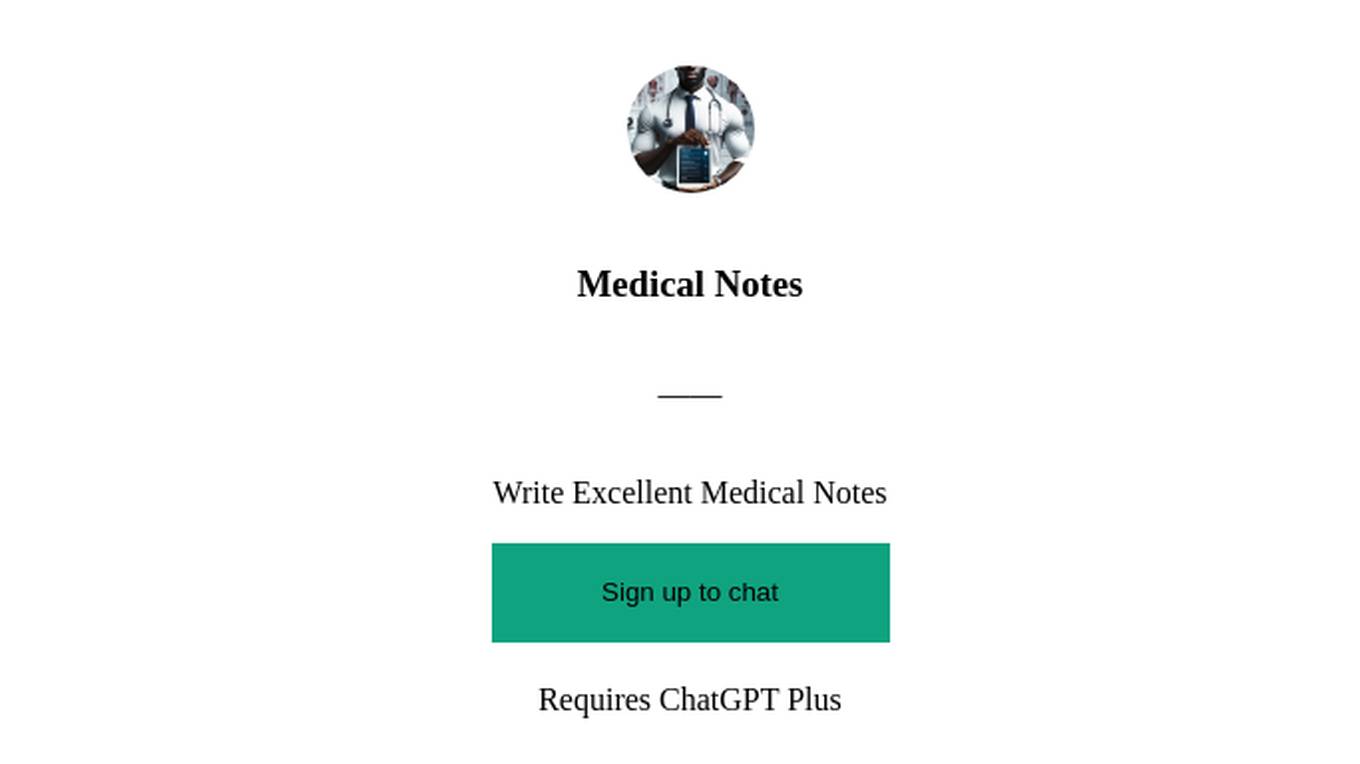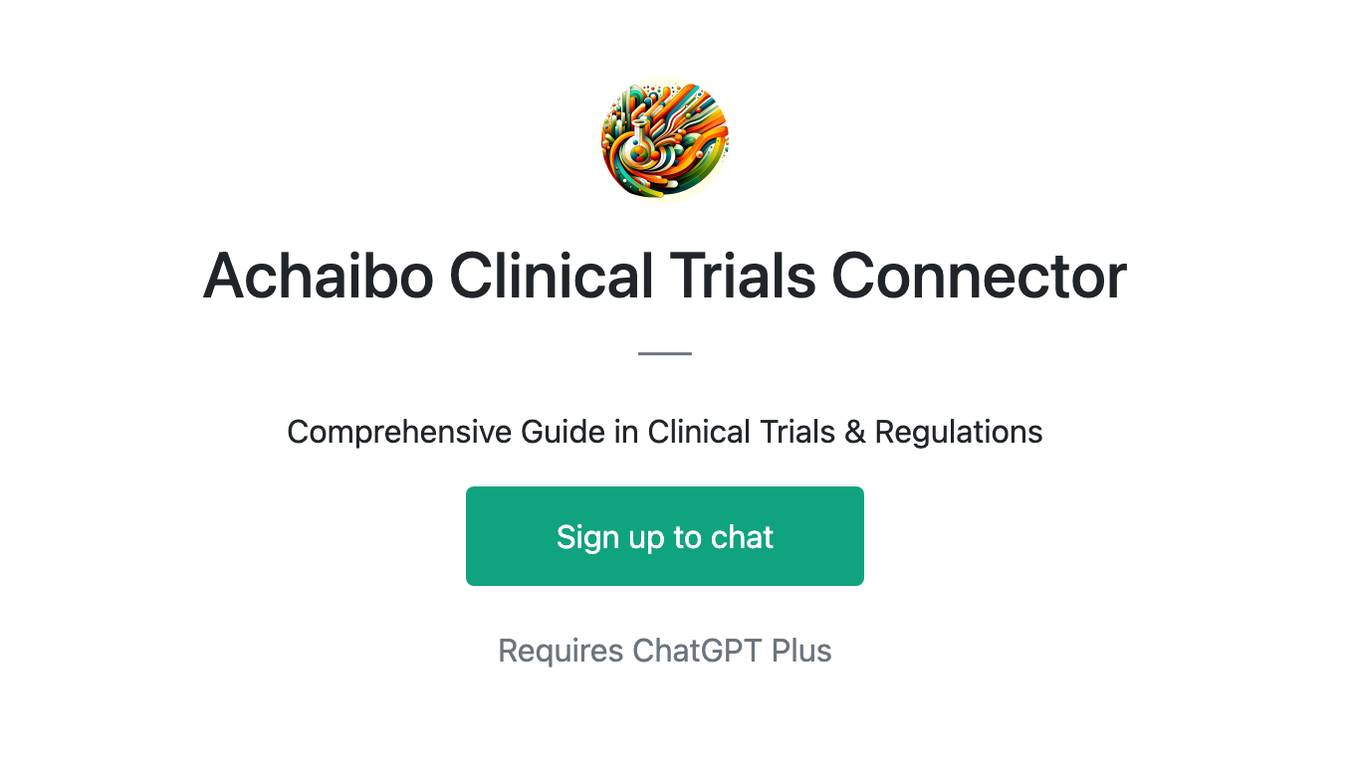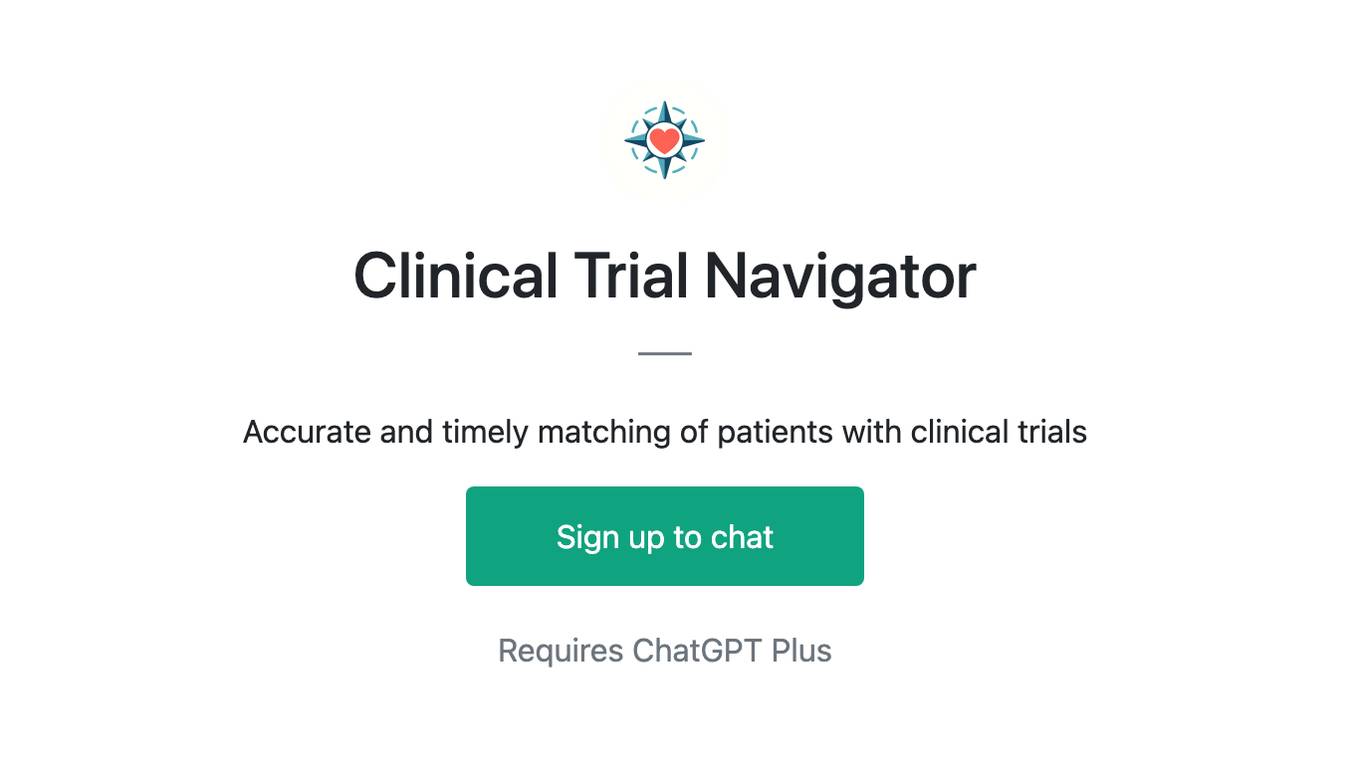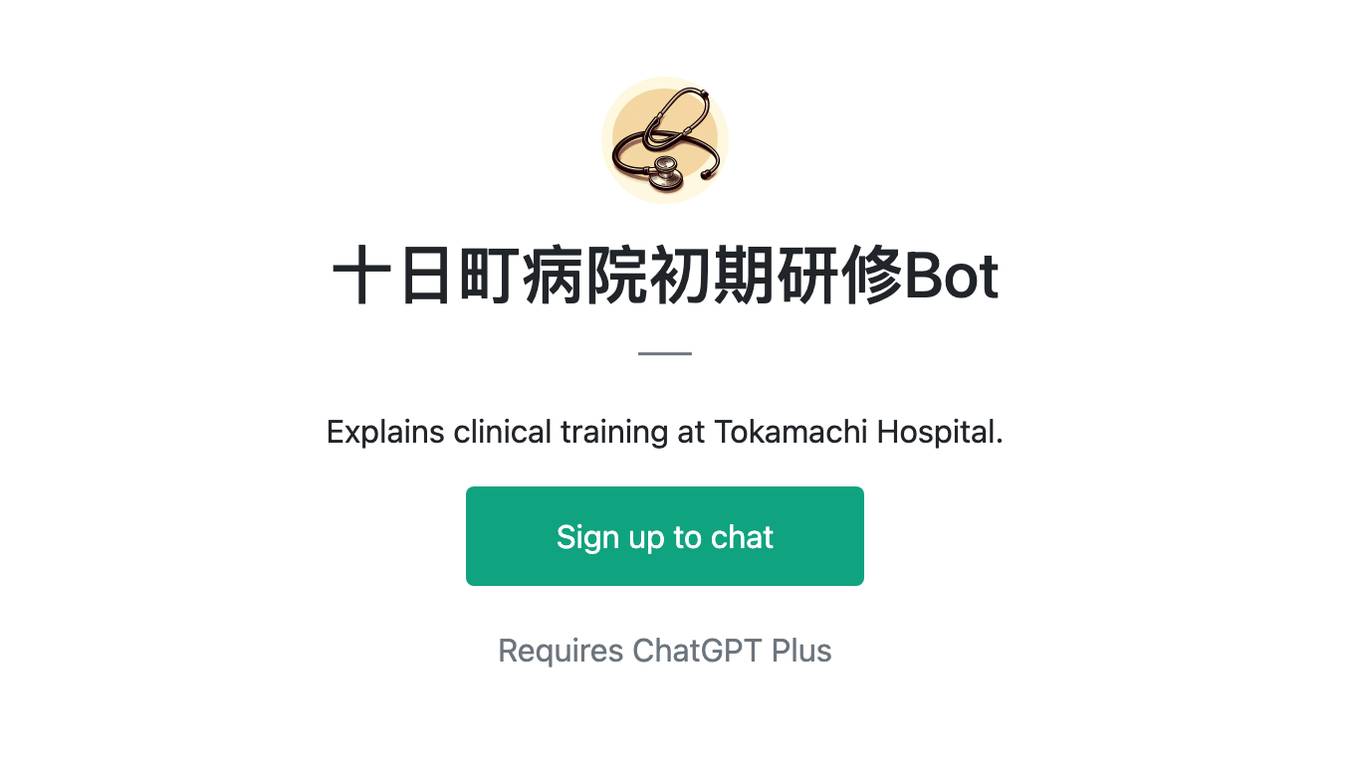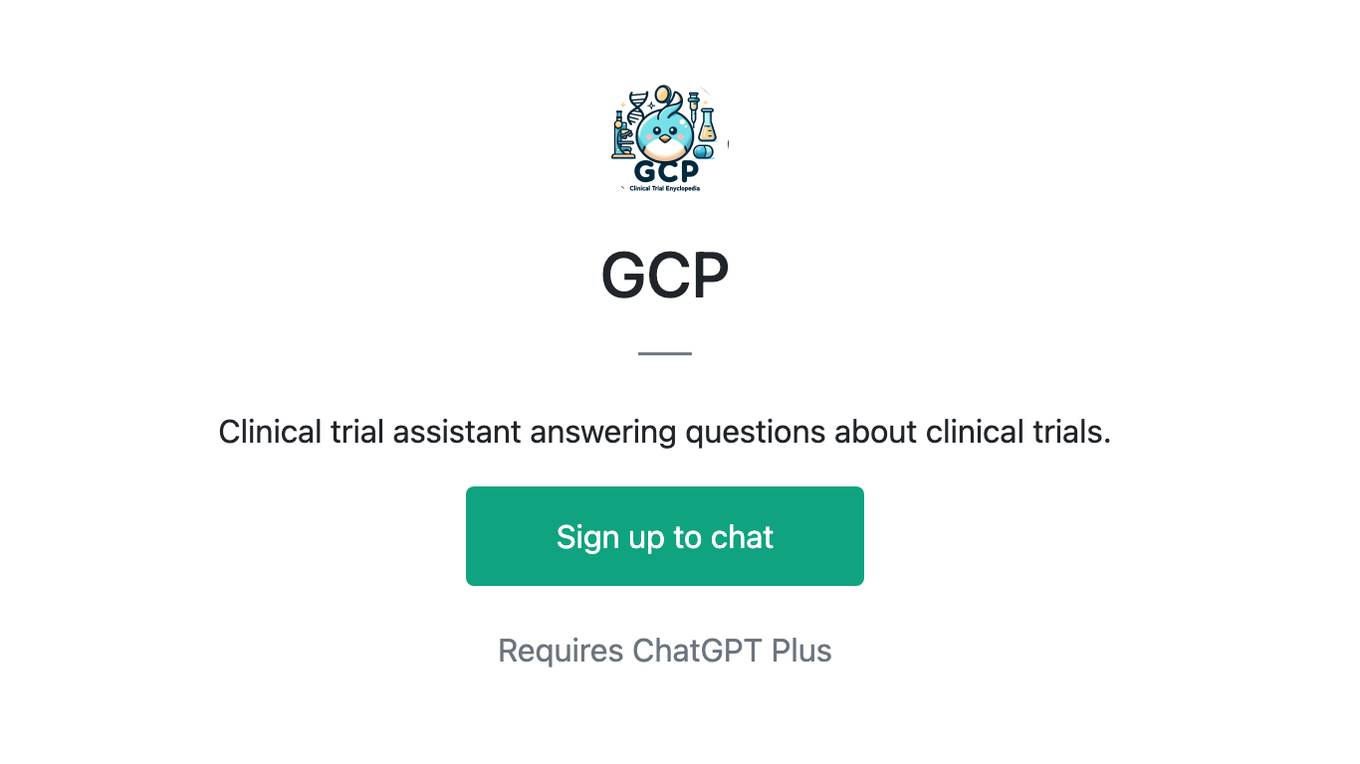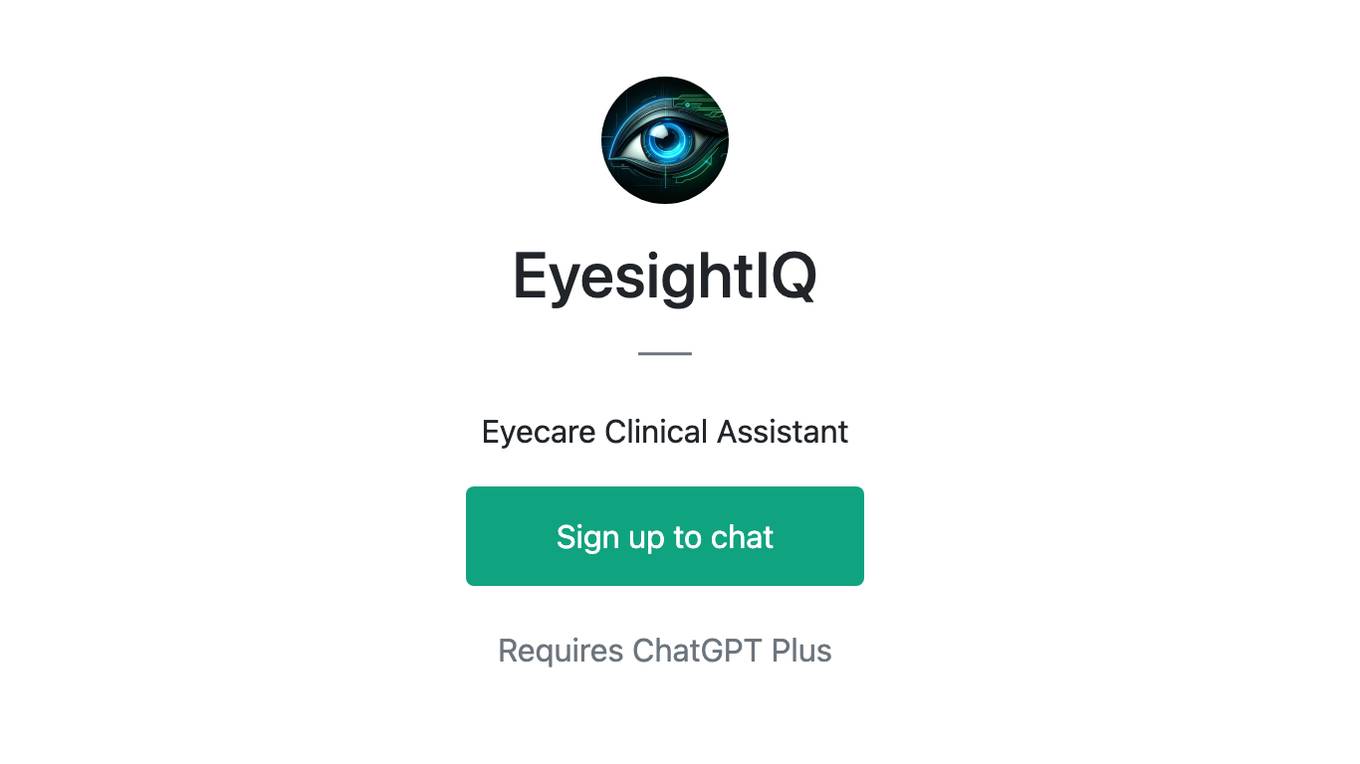Best AI tools for< Clinical Documentation Specialist >
Infographic
20 - AI tool Sites
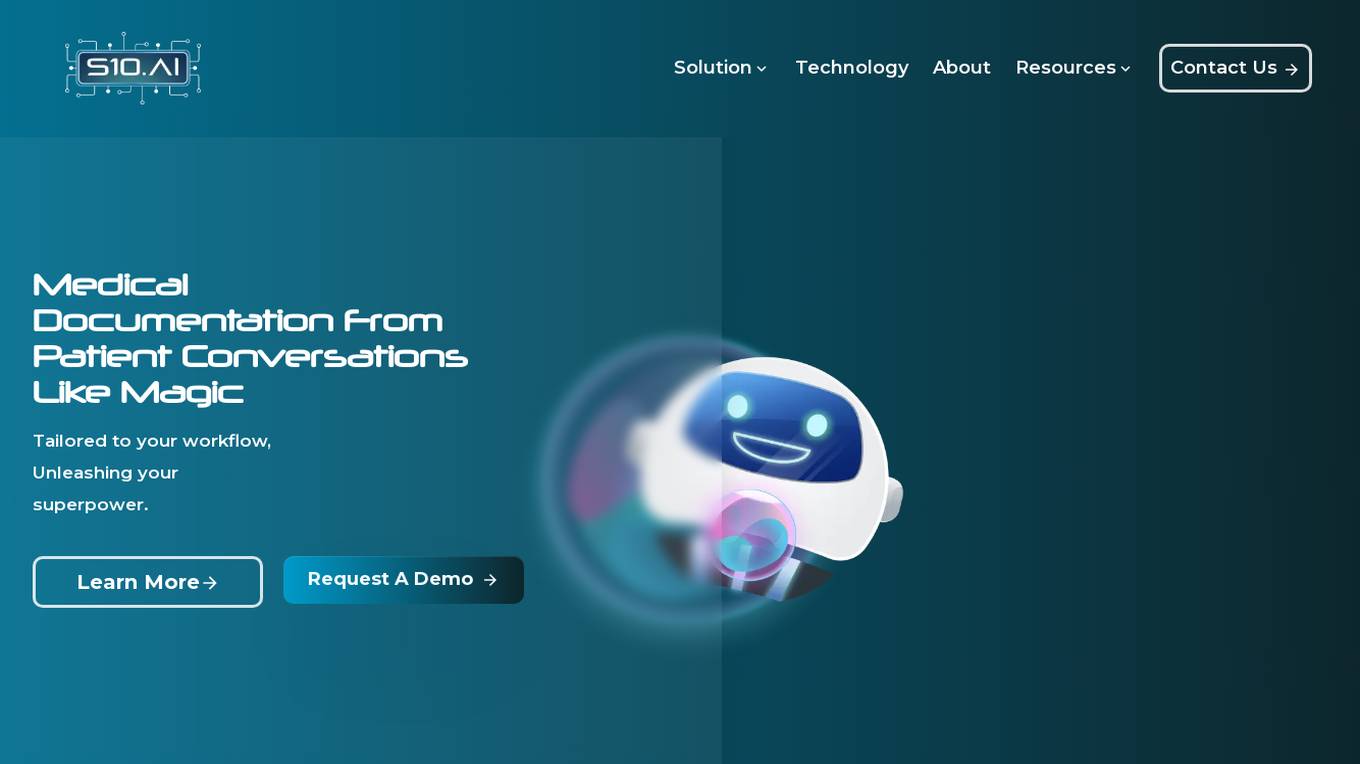
S10.AI
S10.AI is an AI-powered medical scribe application designed to streamline medical documentation processes for healthcare professionals. It offers seamless integration with any EMR system, providing accurate and efficient transcription of patient conversations. The application saves time, ensures confidentiality, and adapts to various medical templates and workflows. S10.AI is praised for its precision, efficiency, and support, making it a valuable asset for practitioners looking to enhance administrative tasks without compromising patient care.
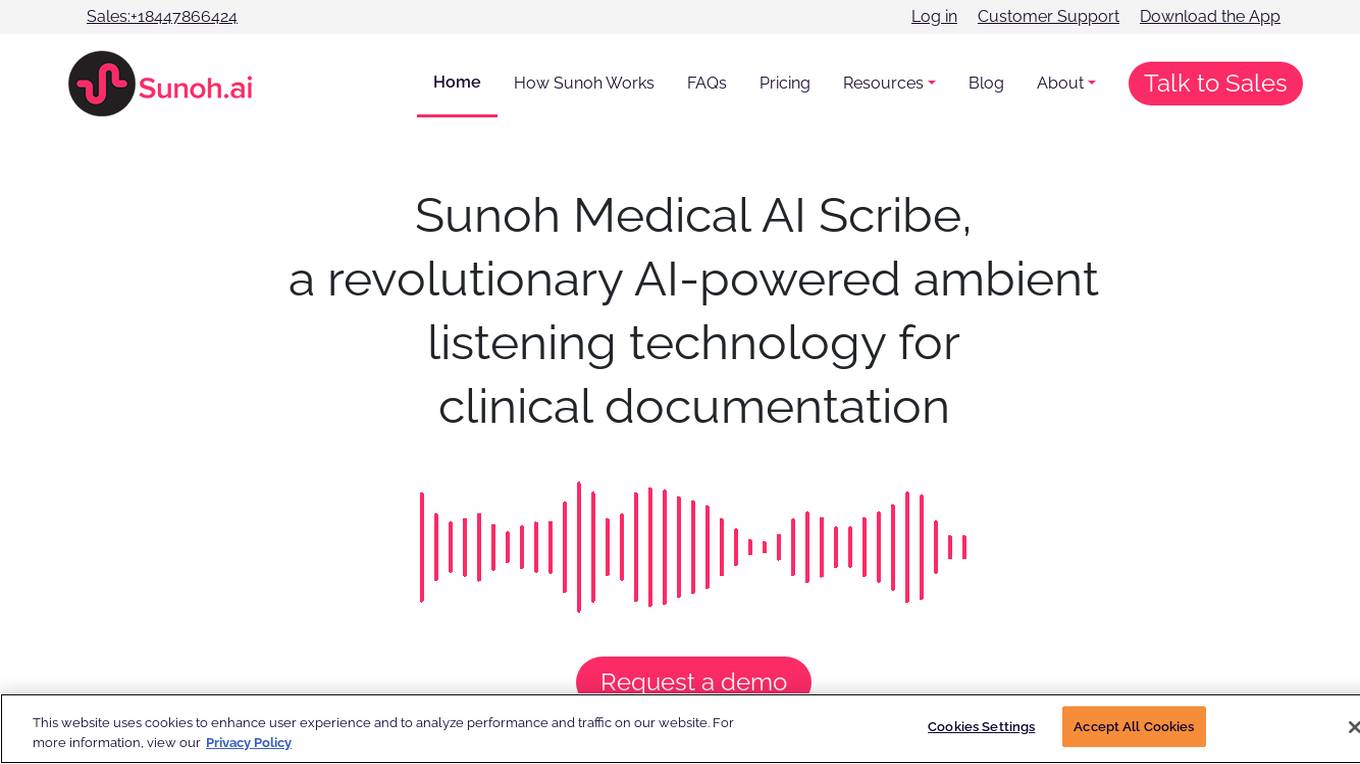
Sunoh Medical AI Scribe
Sunoh is a medical AI scribe that uses ambient listening technology to convert natural conversations between healthcare providers and patients into clinical documentation. It offers a unique and immersive experience for both doctors and patients, making the documentation of clinical notes faster and more efficient than ever before. Sunoh can be used with your EHR to accelerate your documentation.

Iodine Software
Iodine Software is a healthcare technology company that provides AI-enabled solutions for revenue cycle management, clinical documentation integrity, and utilization management. The company's flagship product, AwareCDI, is a suite of solutions that addresses the root causes of mid-cycle revenue leakage from admission through post-billing review. AwareCDI uses Iodine's CognitiveML AI engine to spot what is missing in patient documentation based on clinical evidence. This enables healthcare organizations to maximize documentation integrity and revenue capture. Iodine Software also offers AwareUM, a continuous, intelligent prioritization solution for peak UM performance.
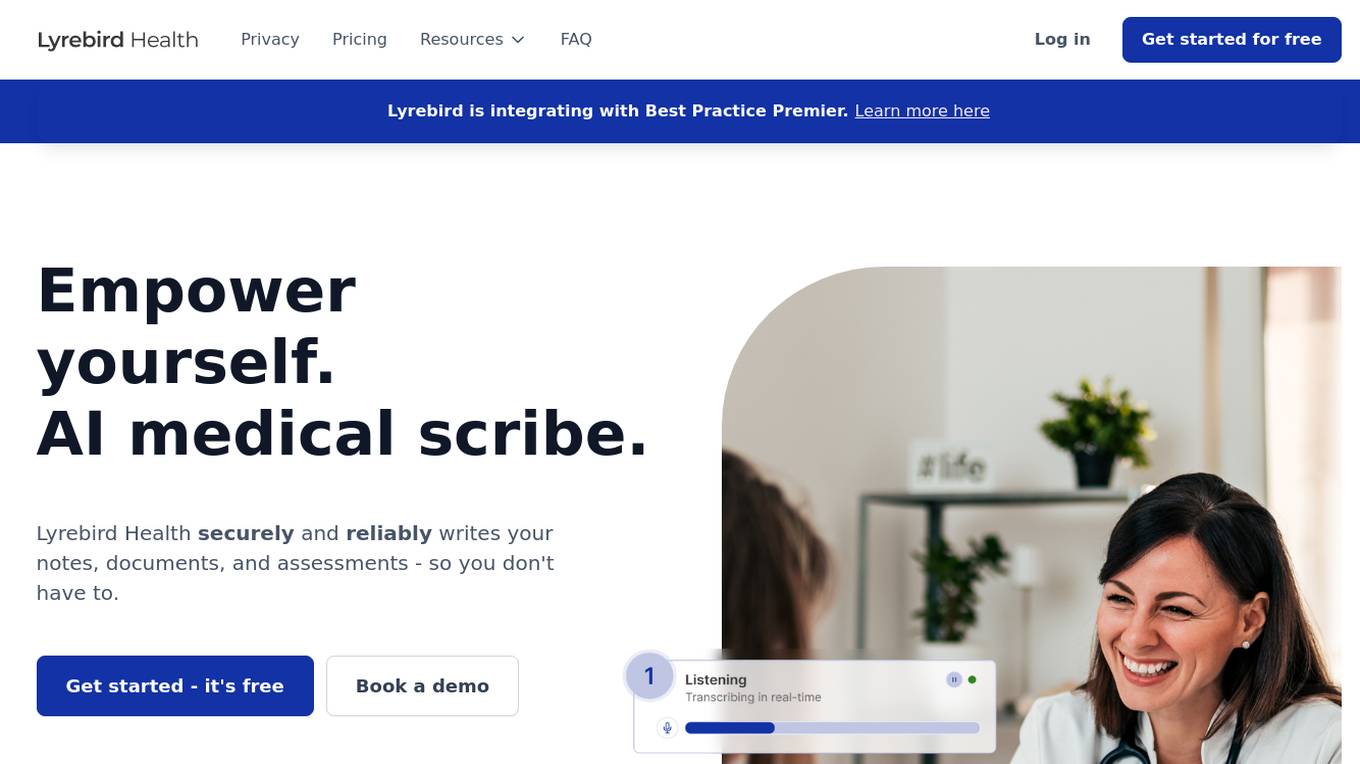
Lyrebird Health
Lyrebird Health is an AI-powered medical scribe that automates documentation tasks for healthcare providers. It uses natural language processing (NLP) to listen in on patient encounters and generate accurate, medico-legally compliant notes, letters, and assessments. Lyrebird Health is designed to save clinicians time and reduce burnout, allowing them to focus on providing better care to their patients.
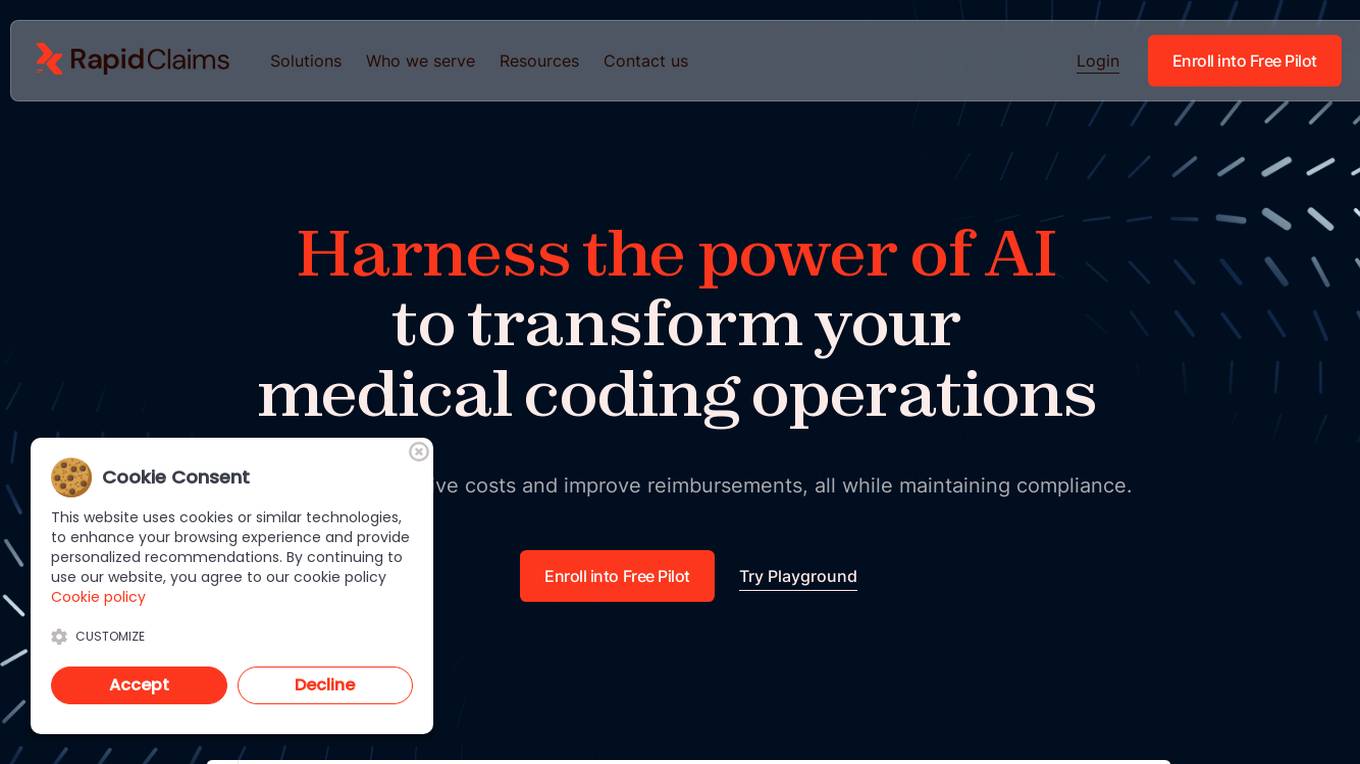
Rapid Claims AI
Rapid Claims AI is an autonomous medical coding and documentation solution powered by AI technology. It aims to streamline medical coding operations, reduce administrative costs, improve reimbursements, and ensure compliance for healthcare providers. The platform offers features like automated coding, personalized solutions, actionable insights, and customizable AI rule sets. Rapid Claims AI is designed to seamlessly integrate into existing workflows, catering to various healthcare setups and specialties. The application prioritizes security and privacy, with data encryption and secure cloud storage. It serves as a valuable tool for enhancing revenue cycle management processes in the healthcare industry.
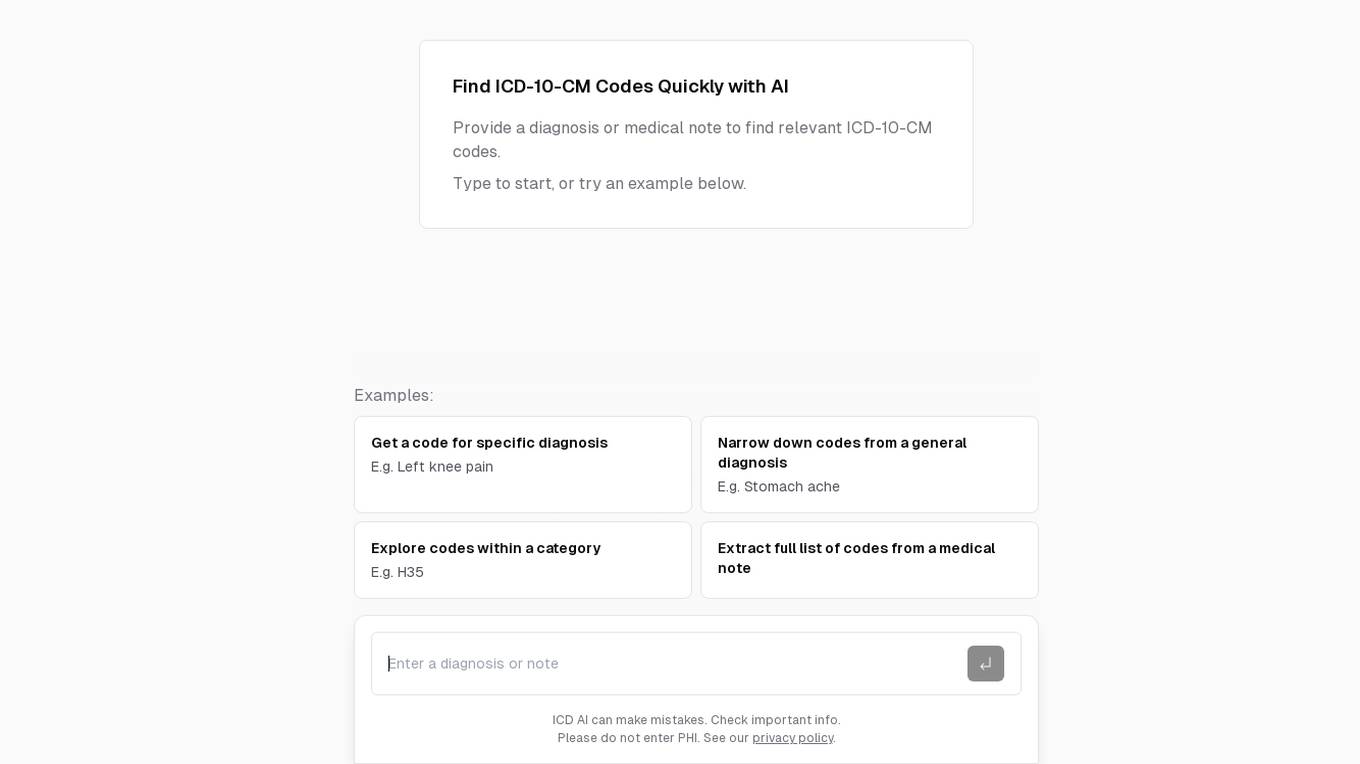
ICD AI
ICD AI is an advanced artificial intelligence tool designed to assist healthcare professionals in accurately assigning diagnostic codes to patient records. The tool utilizes machine learning algorithms to analyze medical data and suggest appropriate ICD codes, streamlining the coding process and reducing errors. With its user-friendly interface and robust features, ICD AI is revolutionizing medical coding practices and improving efficiency in healthcare facilities.
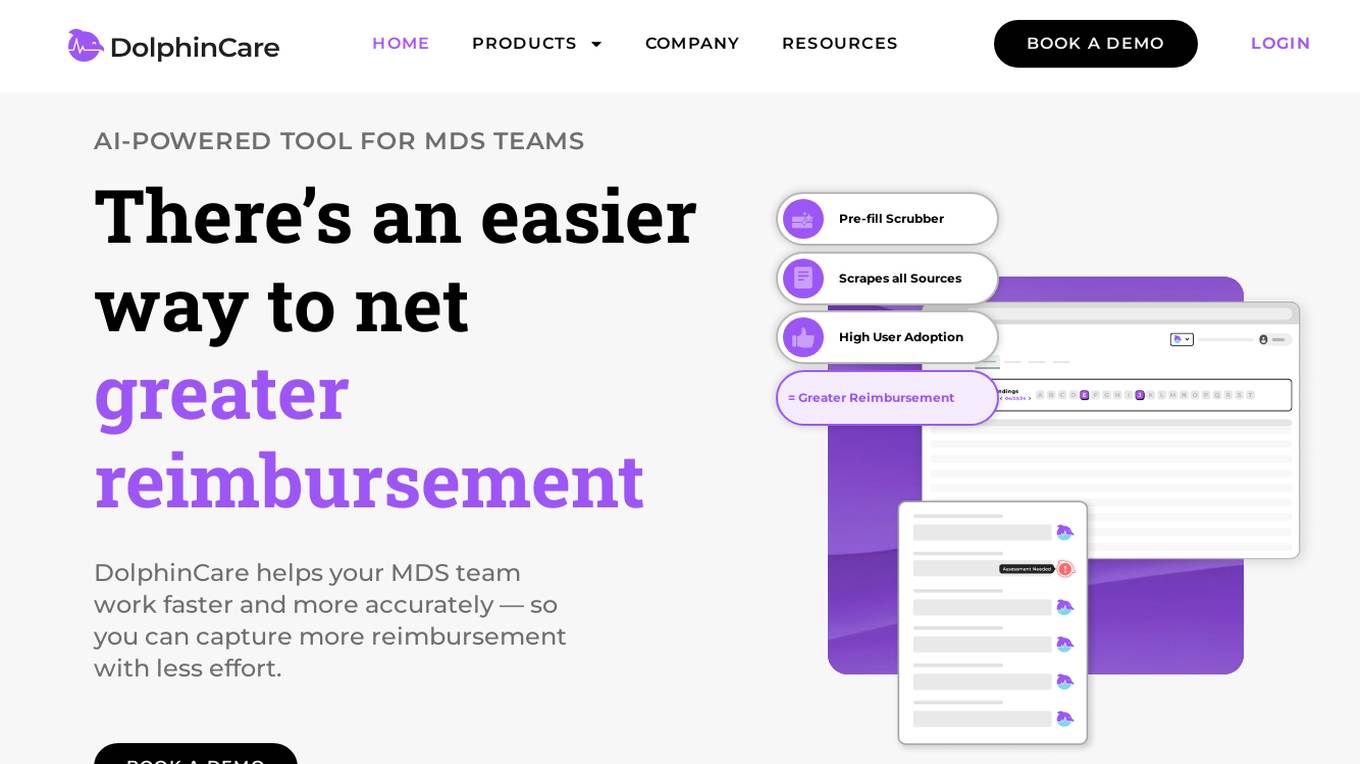
DolphinCare
DolphinCare is an AI-powered tool designed for MDS teams to streamline the MDS process, increase accuracy, and capture more reimbursement with less effort. It offers features such as pre-fill scrubber, high user adoption, auto-suggestions in EHR, regional dashboard, and IPA alerts. DolphinCare is a commitment-free solution that enhances MDS coordination, regional management, and SNF operations by leveraging AI models and real-time data scraping. The tool is praised for its accuracy, efficiency, and user-friendly interface, making it a valuable asset for healthcare facilities seeking to optimize their MDS workflow.
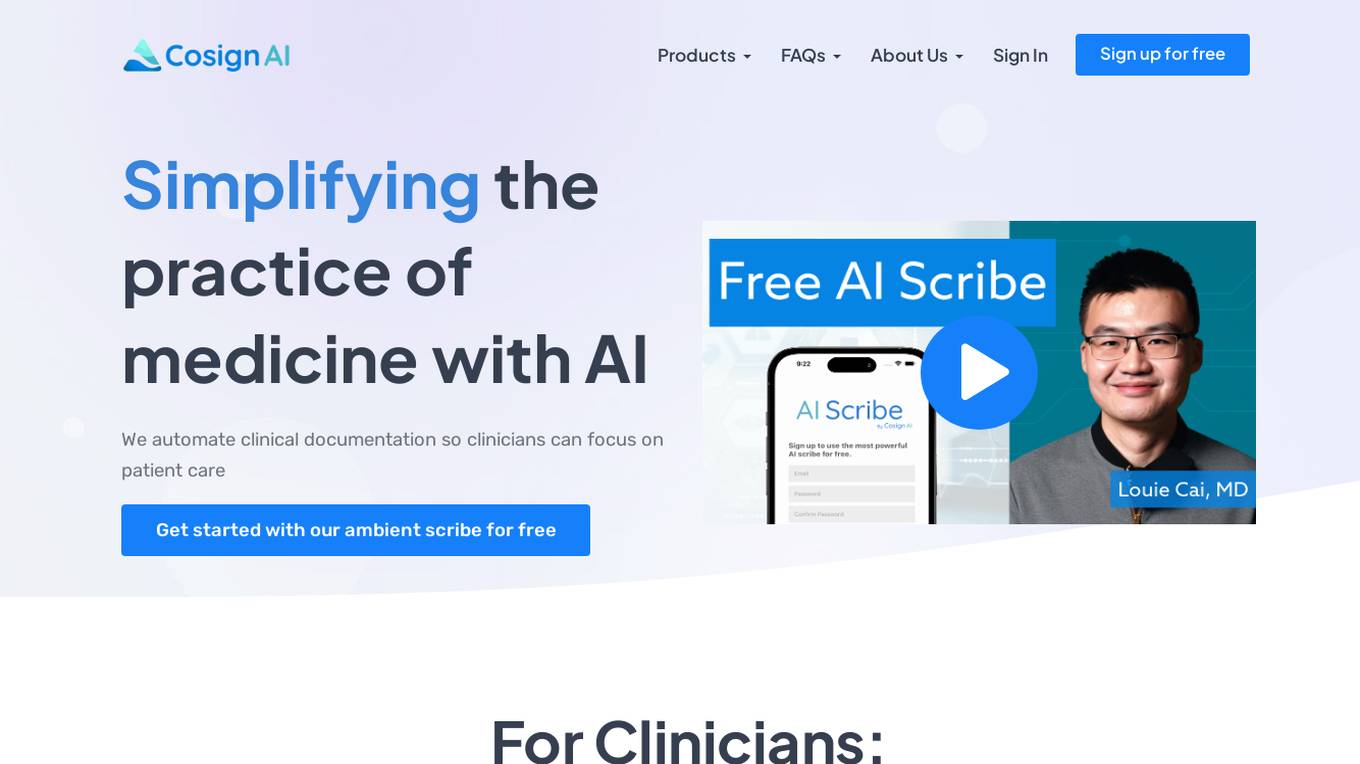
Cosign AI
Cosign AI is an AI application that optimizes clinical practices by automating clinical documentation through an ambient scribe. The tool transforms conversations and dictations into clinical notes using large language models and customizable templates. It prioritizes HIPAA compliance and data security, ensuring a secure infrastructure for storing and processing protected health information. Clinicians can save time, reduce burnout, and improve note quality with this innovative solution.
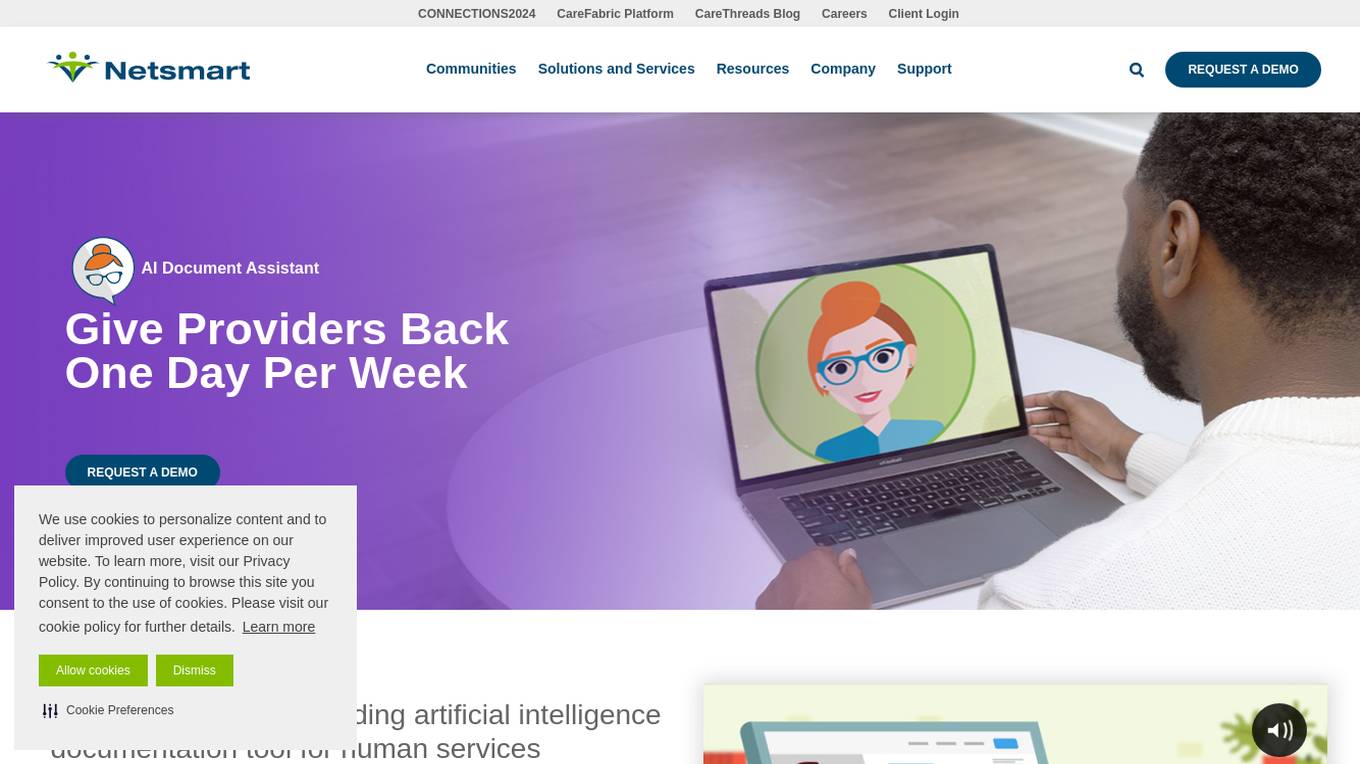
AI Documentation Assistant
The AI Documentation Assistant by Netsmart is a market-leading artificial intelligence documentation tool designed to streamline the documentation process in human services. It utilizes AI technology to enhance EHR systems, improve documentation quality, reduce errors, and increase staff efficiency. The tool caters to various sectors such as behavioral health, addiction treatment, child and family services, IDD, autism, and direct service providers. By leveraging AI capabilities, the assistant aims to save time, boost staff productivity, and enhance the overall quality of care provided.

CareCloud
CareCloud is a cloud-based and AI-powered healthcare solution that offers a comprehensive suite of tools to enhance financial performance, patient care, and operational efficiency for healthcare providers. The platform includes features such as Revenue Cycle Management, Electronic Health Records, Practice Management, Patient Experience Management, and Telehealth. CareCloud leverages AI technology to automate documentation, streamline workflows, optimize collections, and provide intelligent analytics for smarter healthcare management.
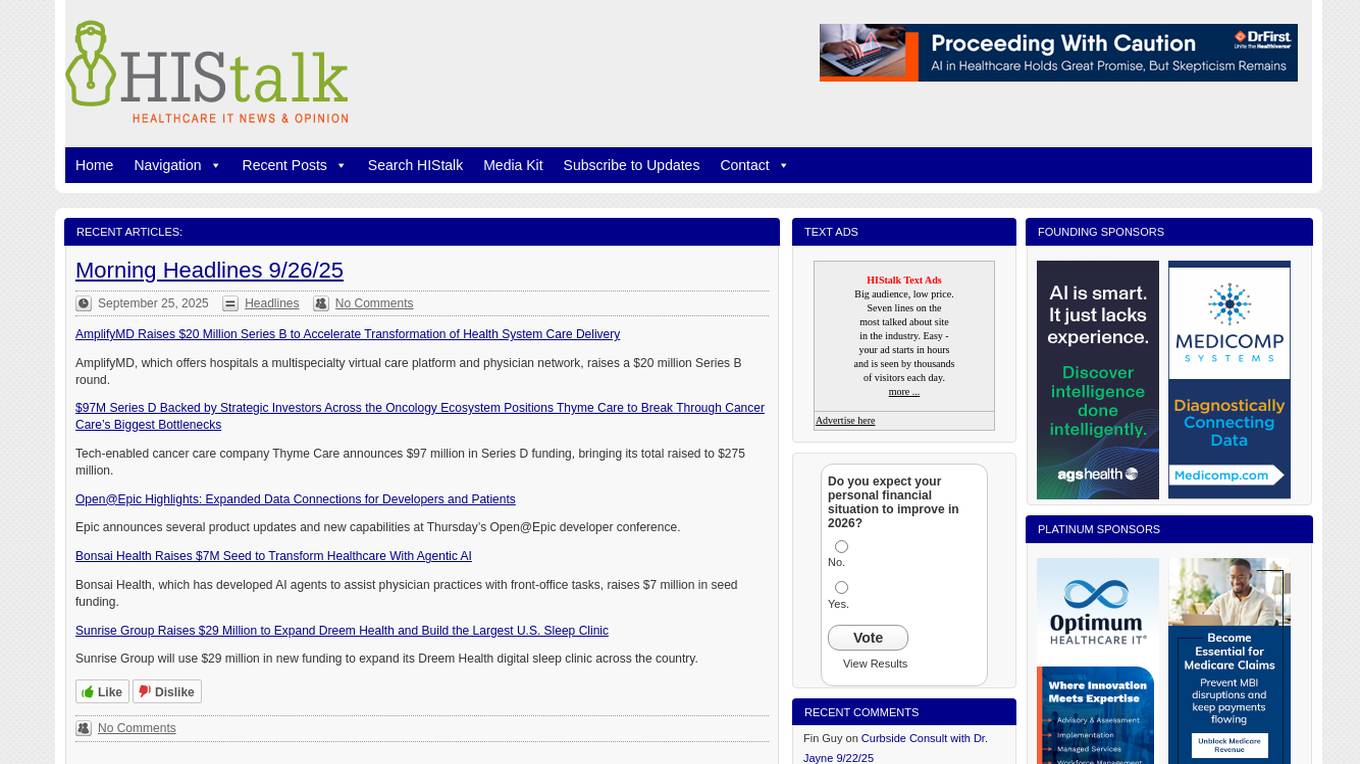
Healthcare IT News Hub
The website page text provides a glimpse into the healthcare IT industry, covering topics such as telehealth, AI advancements, and patient care. It discusses various news articles, acquisitions, funding rounds, and research findings related to healthcare technology. The content highlights the importance of telehealth, AI integration, patient engagement, and the impact of technology on healthcare delivery.
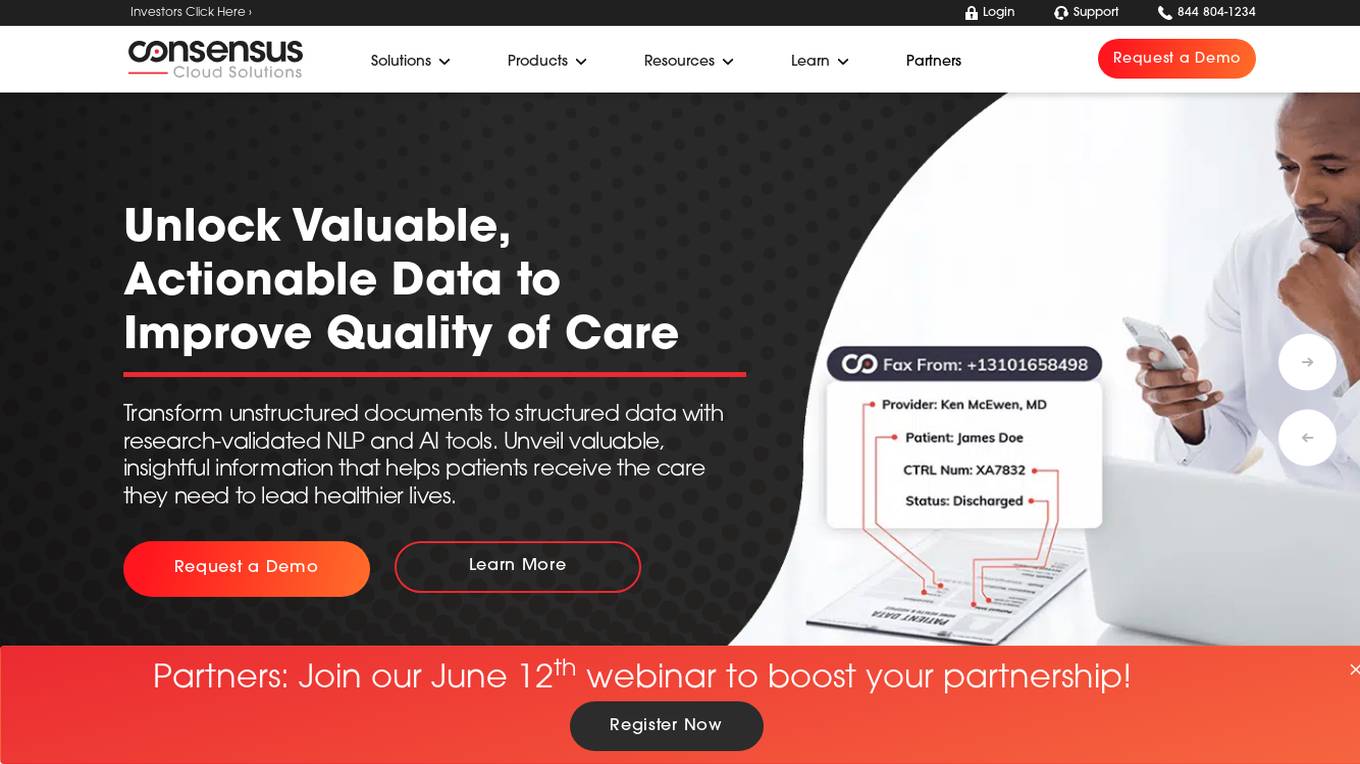
Consensus
Consensus is a healthcare interoperability platform that simplifies data exchange and document processing through artificial intelligence technologies. It offers solutions for clinical documentation, HIPAA compliance, natural language processing, and robotic process automation. Consensus enables secure and efficient data exchange among healthcare providers, insurers, and other stakeholders, improving care coordination and operational efficiency.
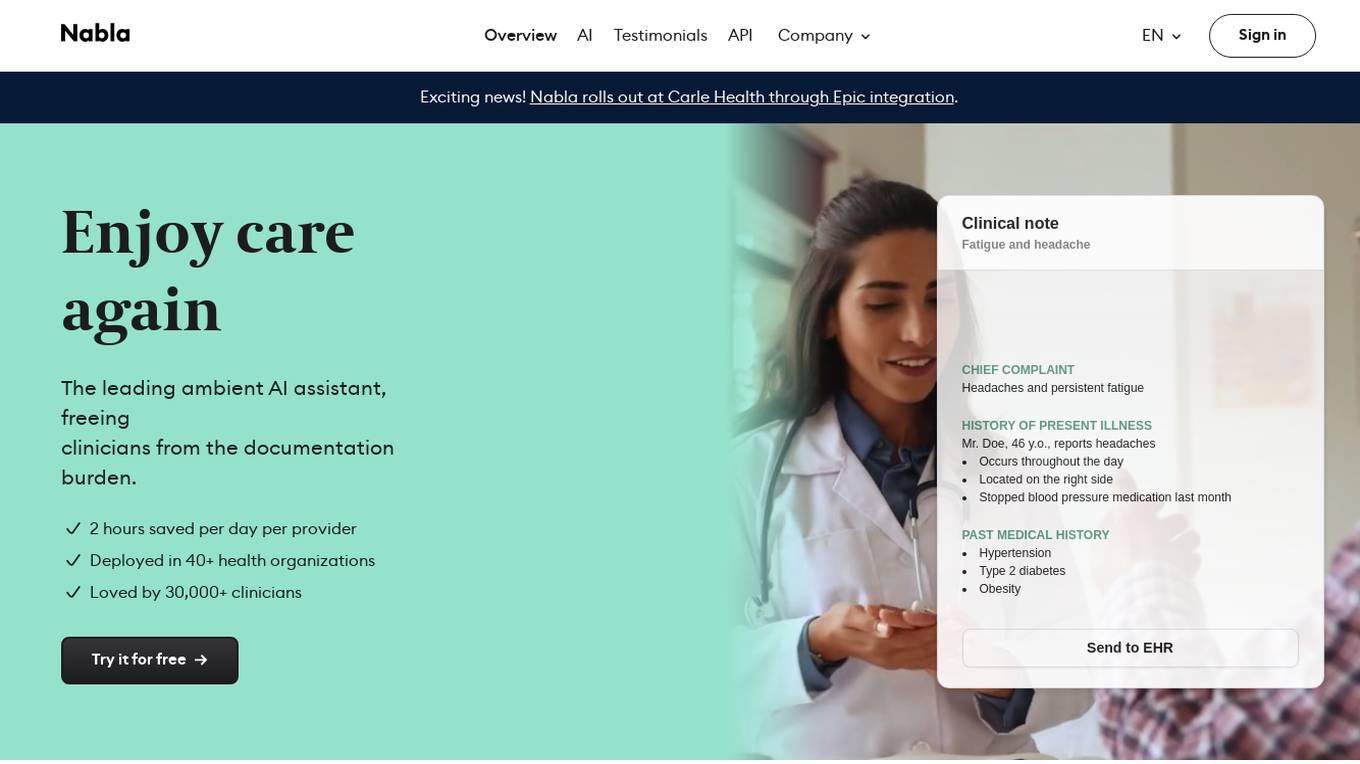
Nabla
Nabla is a leading ambient AI assistant designed to free clinicians from the burden of documentation. It saves clinicians 2 hours per day per provider by streamlining clinical documentation, allowing them to focus on patient care. With over 30,000 clinicians loving the application, Nabla provides detailed, accurate, and HIPAA-compliant visit or phone documentation in under a minute. The AI transcribe program is easy, convenient, and removes non-medical conversation, making it an indispensable tool for medical practitioners across various specialties.
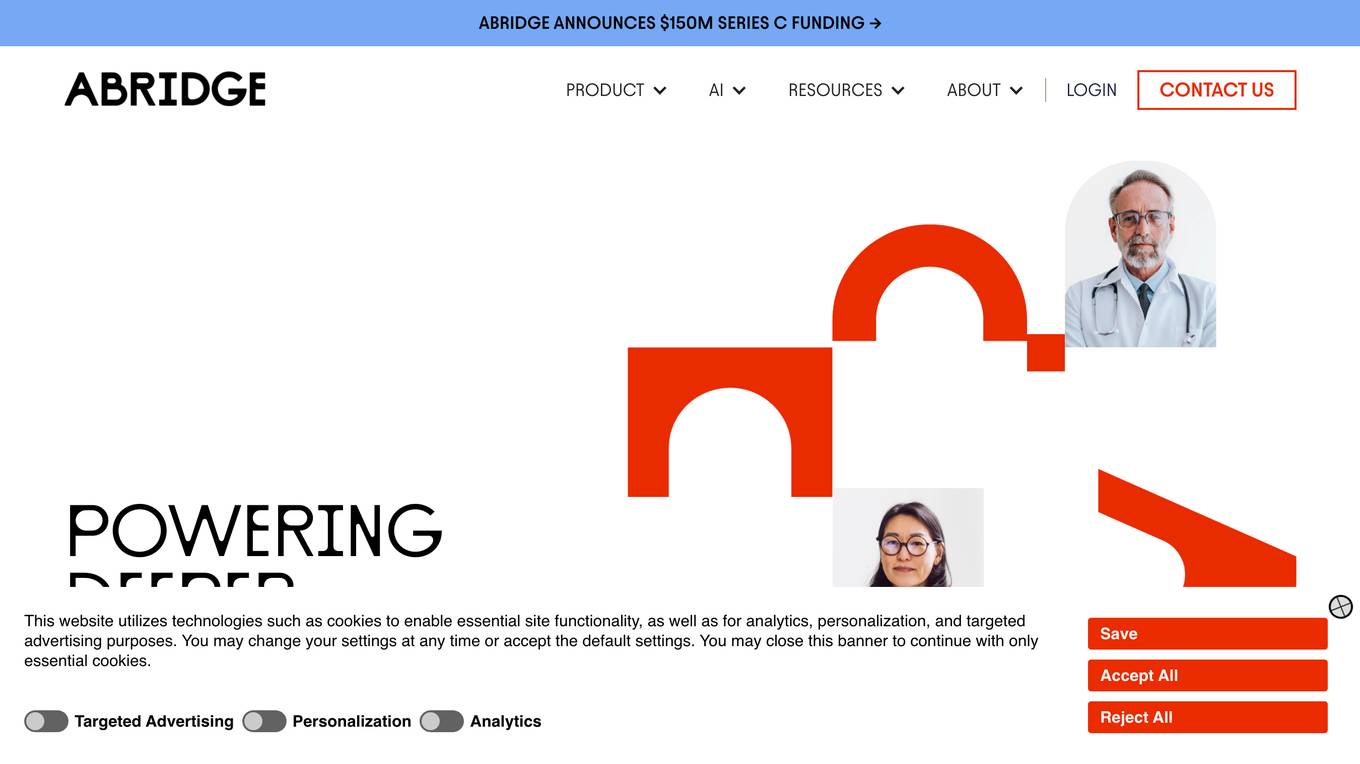
Abridge
Abridge is an AI tool designed for clinical conversations in healthcare settings. It transforms patient-clinician interactions into contextually aware, clinically useful, and billable AI-generated notes in real time. The platform is trusted by the largest healthcare systems and aims to measurably improve outcomes for clinicians, nurses, and revenue cycle teams at scale.
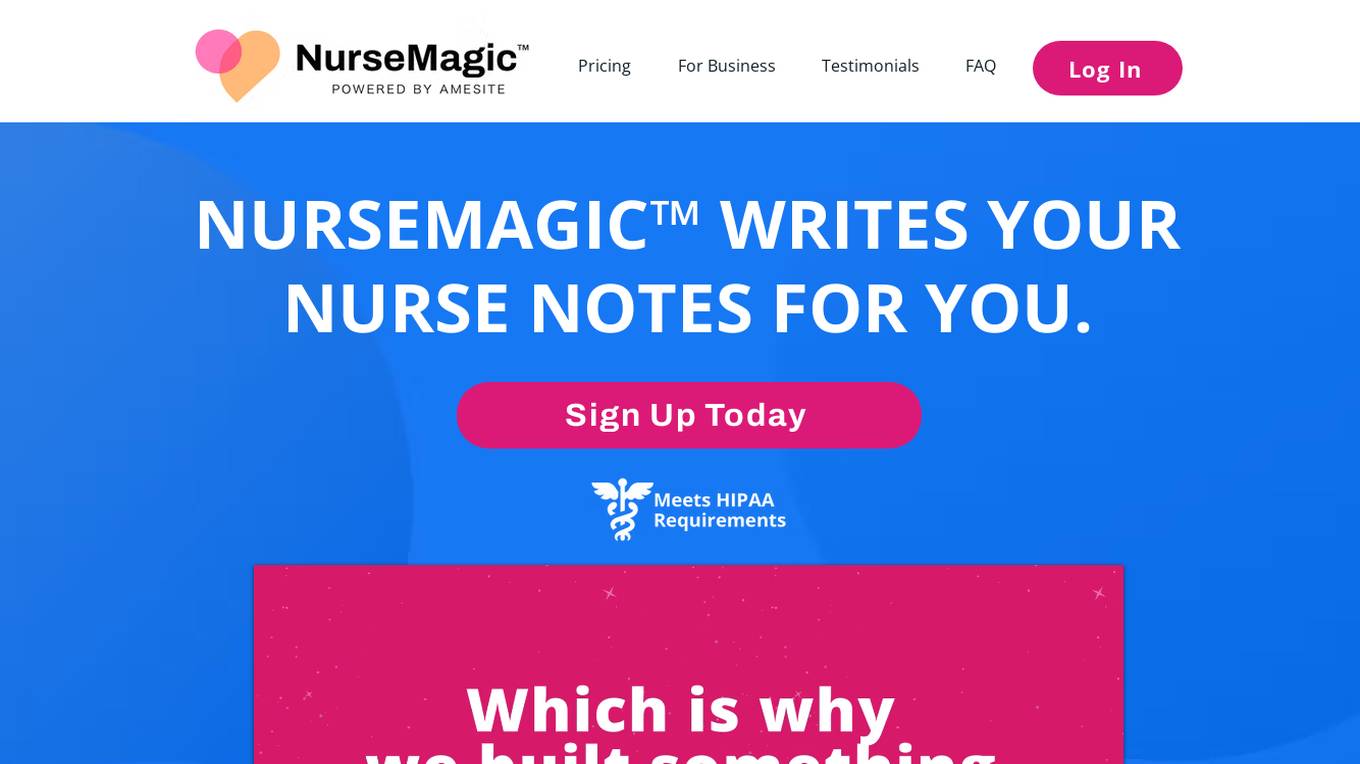
NurseMagic
NurseMagic is an AI tool designed for nurses to streamline their note-taking process. It helps nurses save time by cutting charting time significantly, providing clear and professional notes in seconds, and enabling them to chart with confidence. The tool is trusted by over 10,000 care professionals across 100+ professions in 50 states and 21 countries. NurseMagic also offers valuable resources such as nursing tips, expert advice, and industry trends to help nurses stay informed and improve their practice.
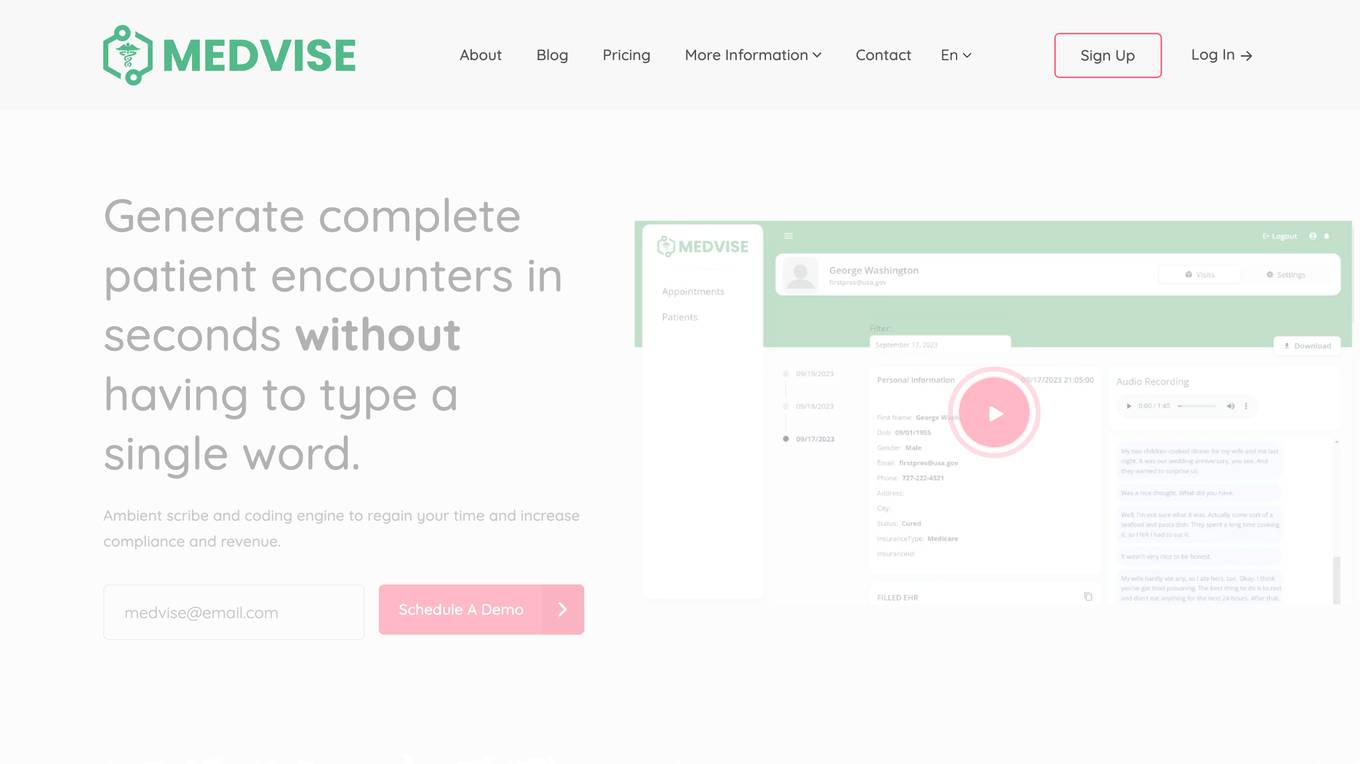
Medvise
Medvise is an AI-powered medical scribe and coding engine designed to eliminate administrative tasks in the medical field. It ensures accurate and efficient medical charting, freeing up providers' time to focus on patient care. Medvise offers real-time scribe, automated data entry, AI-powered medical coding, and AI analysis and support. It accurately categorizes and organizes clinical notes, assessments, procedures, medications, and more, seamlessly integrating with EHR platforms. Medvise also ensures compliance with medical coding and billing standards, highlights documentation gaps, and suggests improvements. The platform allows for verbal initiation of requests and provides relevant answers based on data and guidelines. Medvise API Gateway enables seamless integration of AI-powered healthcare solutions into existing infrastructure.

Astra Health AI Scribe
Astra Health is a leading multilingual AI scribe application designed for clinicians to automate clinical documentation, streamline medical notes creation, and enhance patient care. The application supports 35 languages, offers ambient listening mode for real-time transcription, and allows users to quantify AI efficiency in practice. Astra Health prioritizes security and compliance with Australian privacy regulations, providing personalized efficiency through custom templates and voice-controlled AI mode.
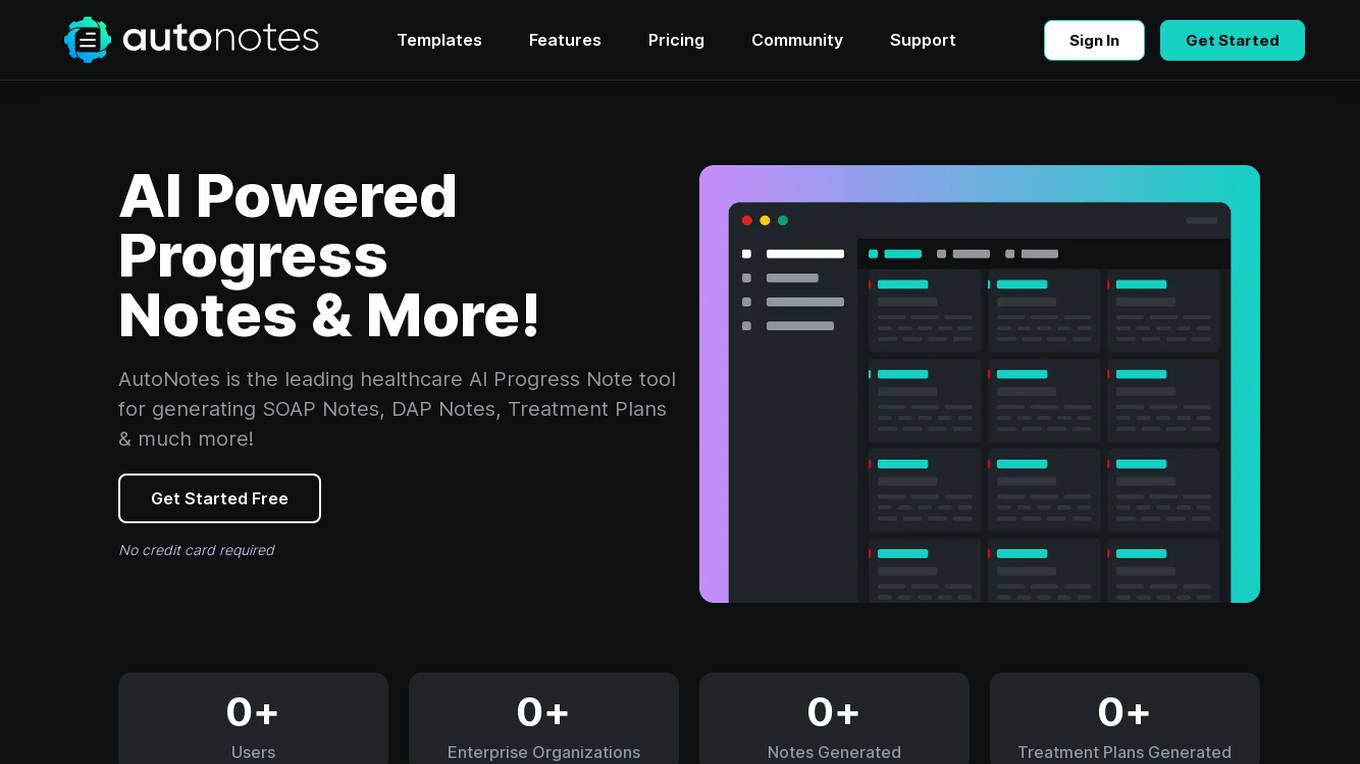
AutoNotes
AutoNotes is a leading healthcare AI Progress Note tool that offers AI-powered clinical documentation templates for generating SOAP Notes, DAP Notes, Treatment Plans, and more. It provides a user-friendly interface for therapists and healthcare professionals to create detailed and customizable clinical notes efficiently. With features like summarizing sessions, editing and downloading notes, and simple pricing plans, AutoNotes aims to streamline the documentation process in healthcare settings. The platform also offers advanced features like template customization, secure document storage, and dictation for voice-to-text conversion. Users can benefit from the platform's customization options, seamless integration with workflows, and responsive customer support.
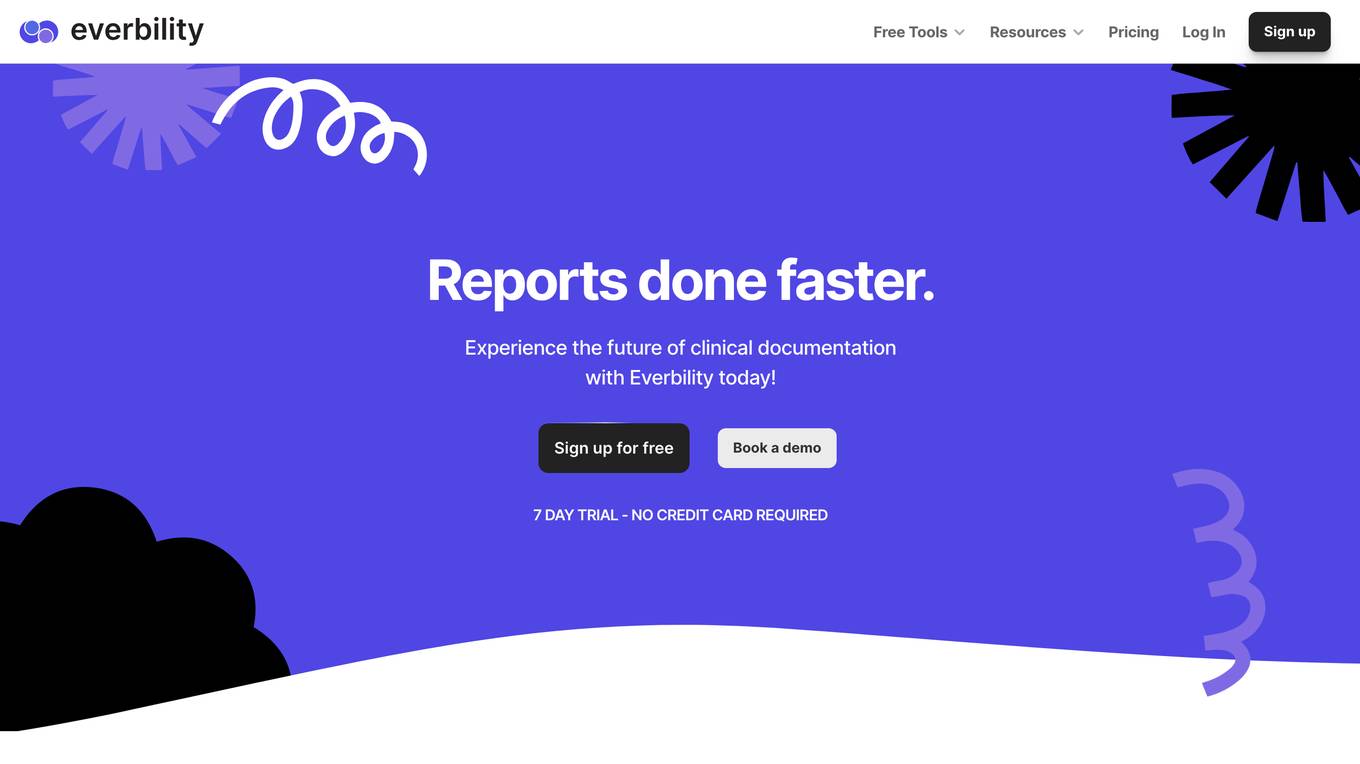
Everbility
Everbility is an AI-powered clinical documentation tool designed for Allied Health Professionals. It helps in writing reports, synthesizing client notes, brainstorming ideas, and focusing on client care. The tool saves time by generating progress notes, letters, and assessment reports, while ensuring data privacy and compliance with regulations like HIPAA and Australian Privacy Principles.
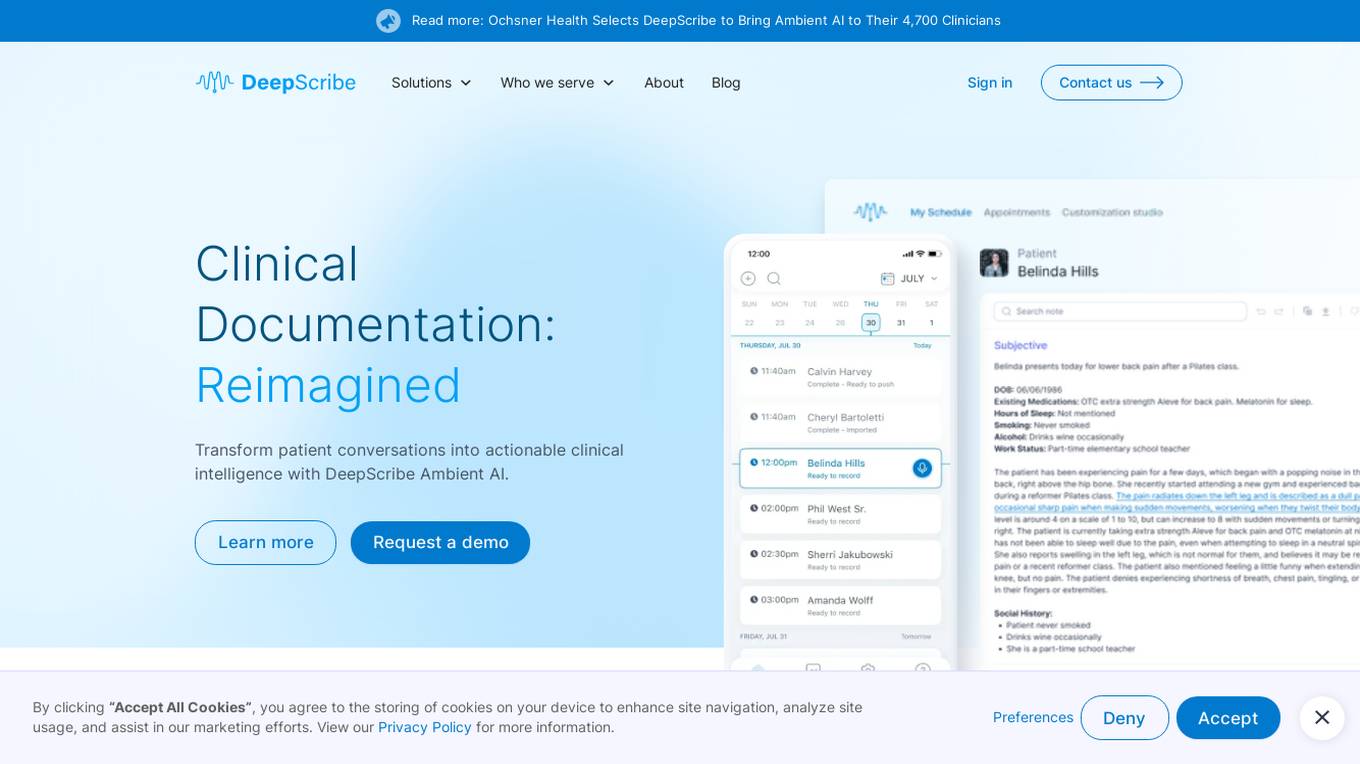
DeepScribe
DeepScribe is an AI medical scribe application that leverages advanced speech recognition technology to capture clinical conversations with extreme accuracy. It empowers clinicians and health systems with real-time AI insights, offers customization options to match provider workflows, and ensures trust and safety through features that promote AI transparency. DeepScribe is designed to save time, improve accuracy, drive adoption, and maximize revenue for doctors, hospitals, and health systems. The application is built for enterprise use, allowing users to unlock the power of AI and modernize their patient data strategy.
0 - Open Source Tools
20 - OpenAI Gpts
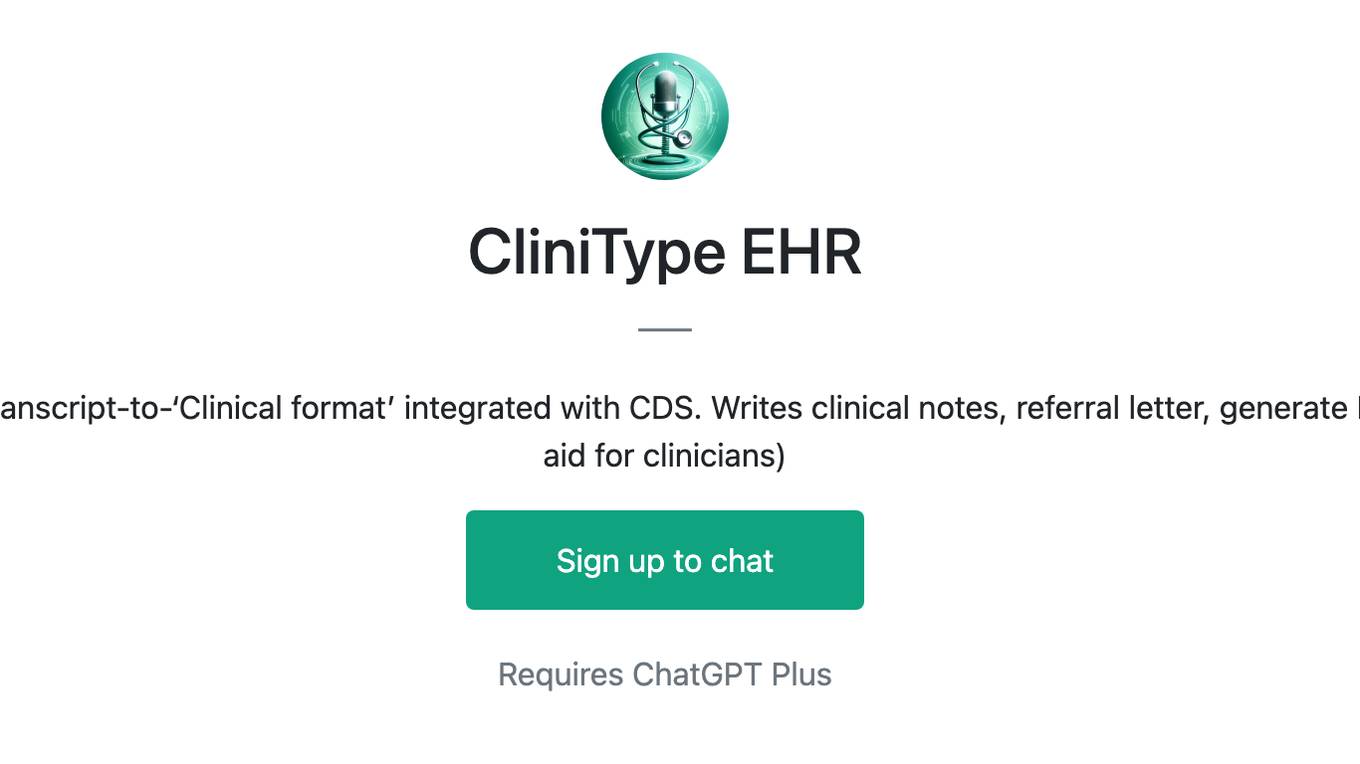
CliniType EHR
Voice-to-text, Vision-to-text transcription, Transcript-to-‘Clinical format’ integrated with CDS. Writes clinical notes, referral letter, generate PDF,prepare discharge summary. (Ultimate aid for clinicians)
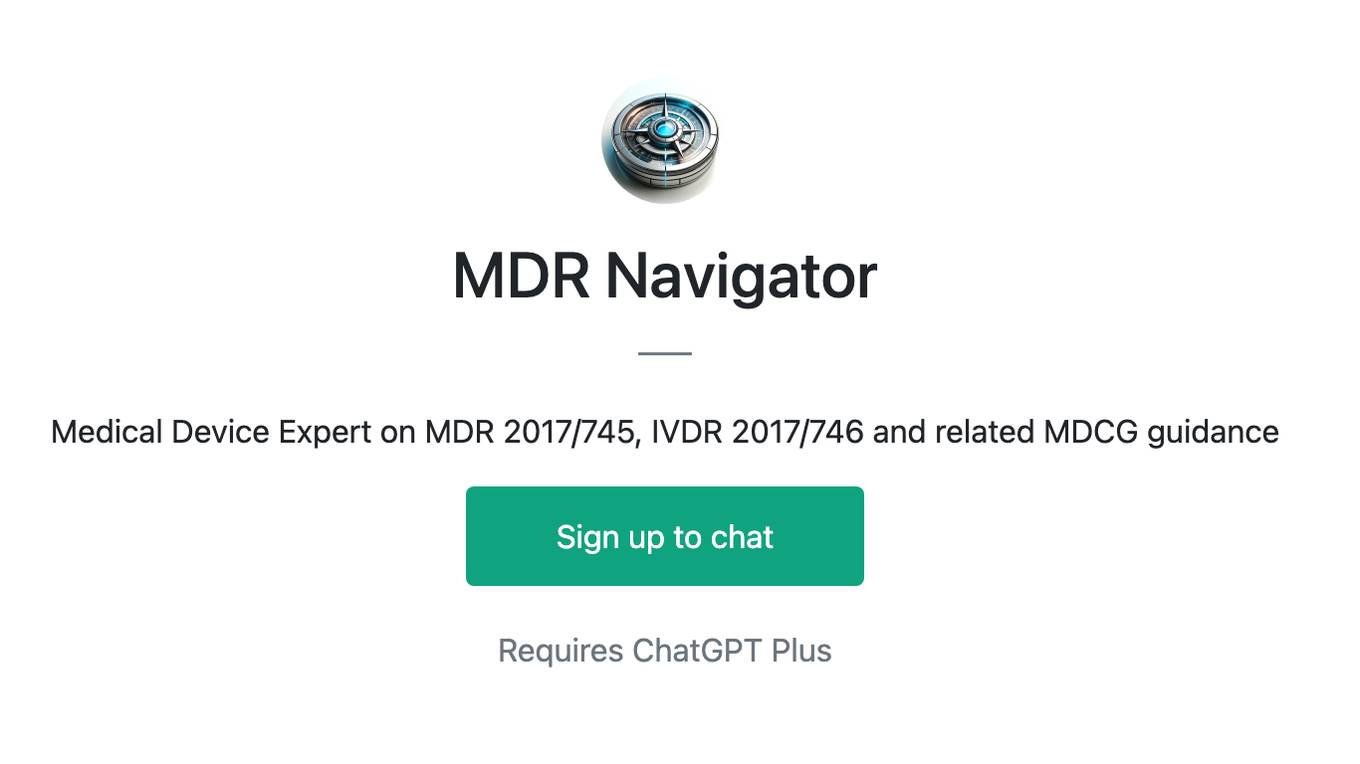
MDR Navigator
Medical Device Expert on MDR 2017/745, IVDR 2017/746 and related MDCG guidance
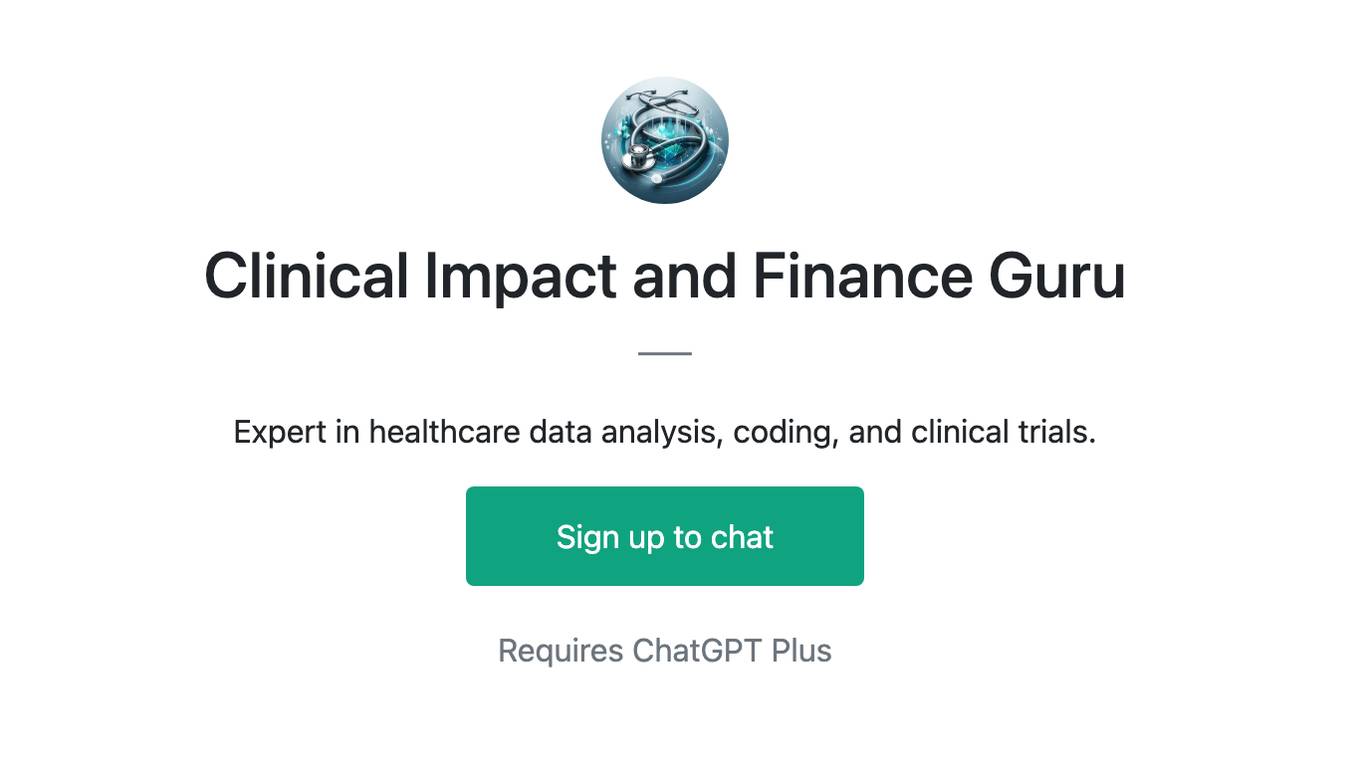
Clinical Impact and Finance Guru
Expert in healthcare data analysis, coding, and clinical trials.
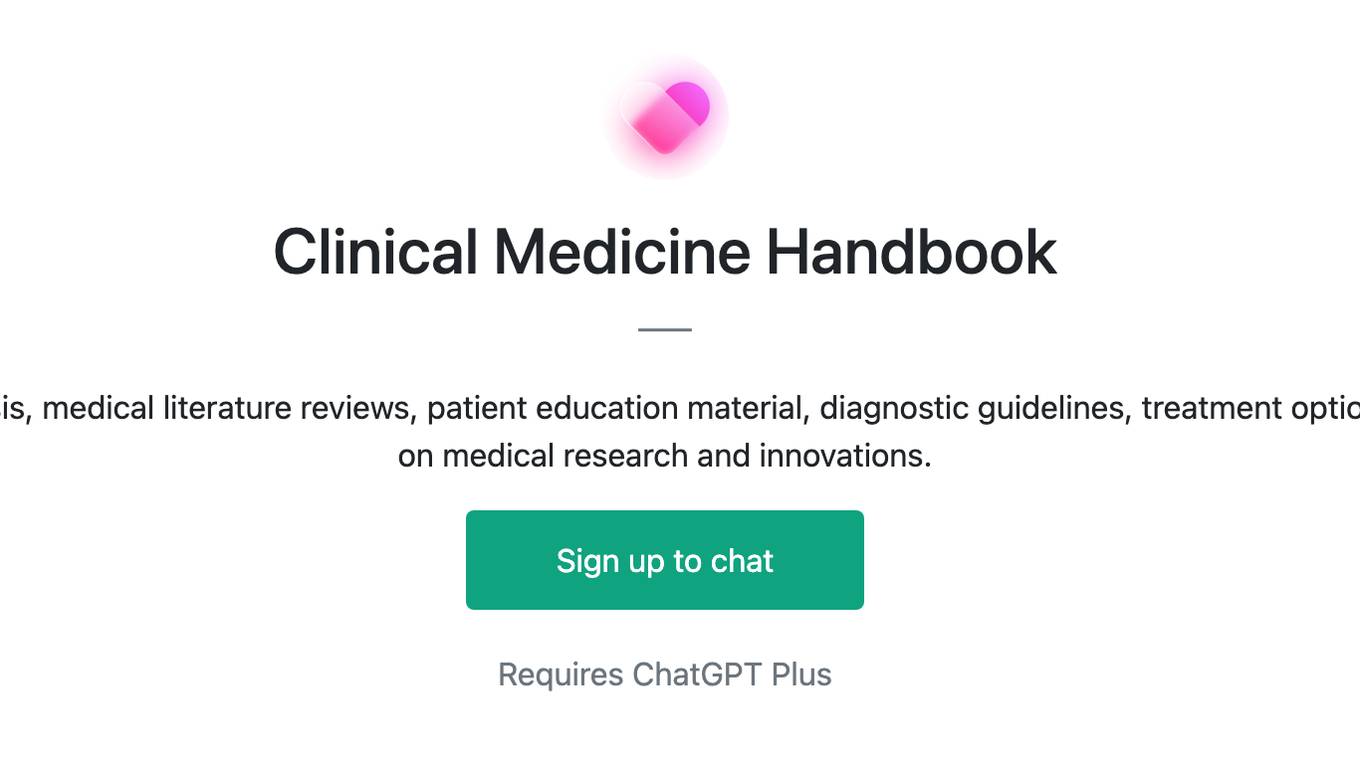
Clinical Medicine Handbook
I can assist doctors with information synthesis, medical literature reviews, patient education material, diagnostic guidelines, treatment options, ethical dilemmas, and staying updated on medical research and innovations.
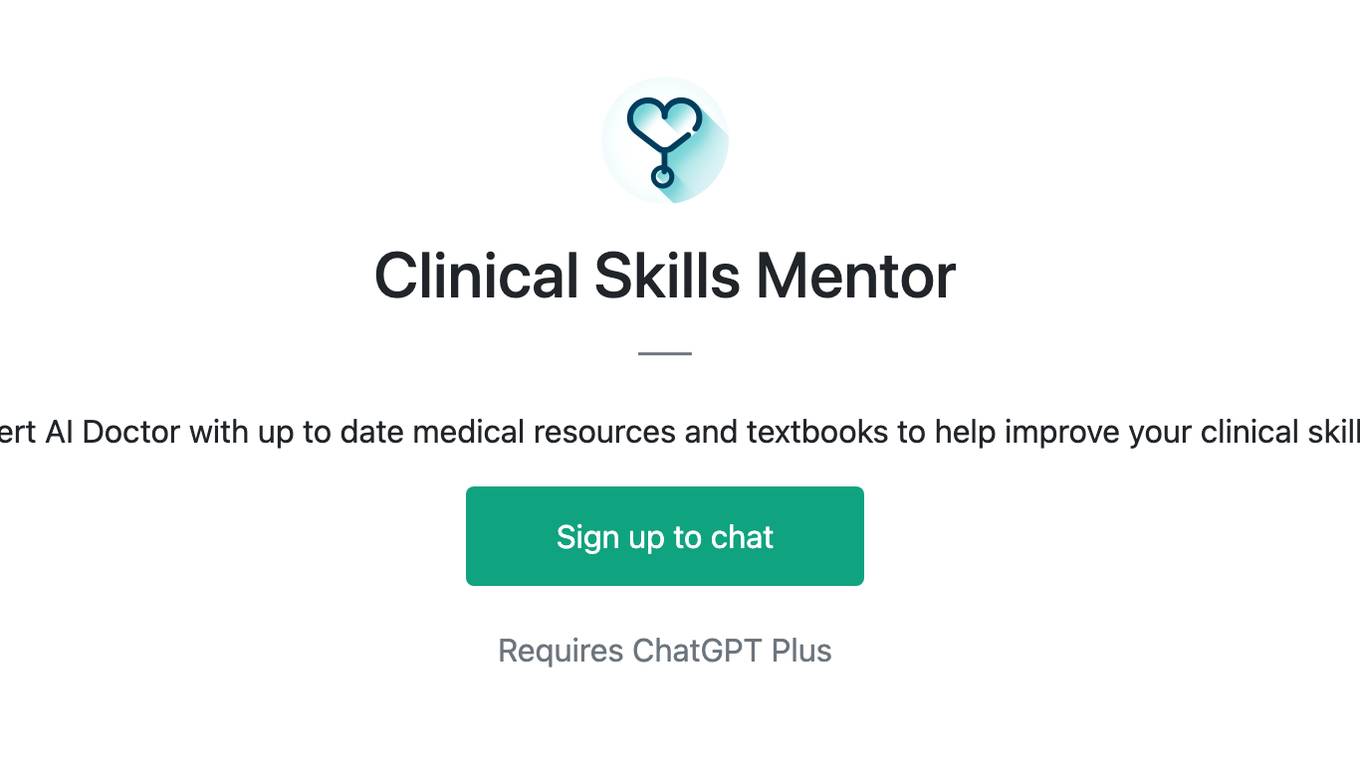
Clinical Skills Mentor
Expert AI Doctor with up to date medical resources and textbooks to help improve your clinical skills.
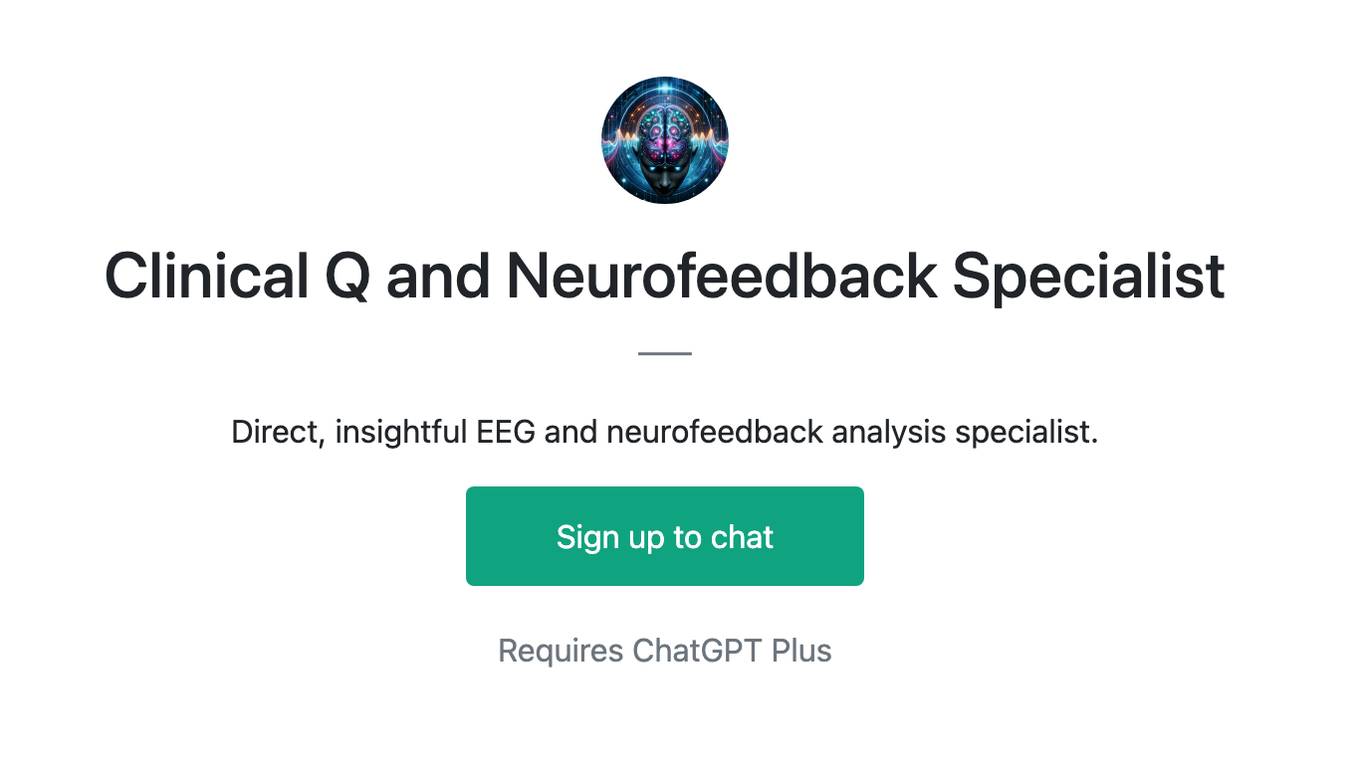
Clinical Q and Neurofeedback Specialist
Direct, insightful EEG and neurofeedback analysis specialist.
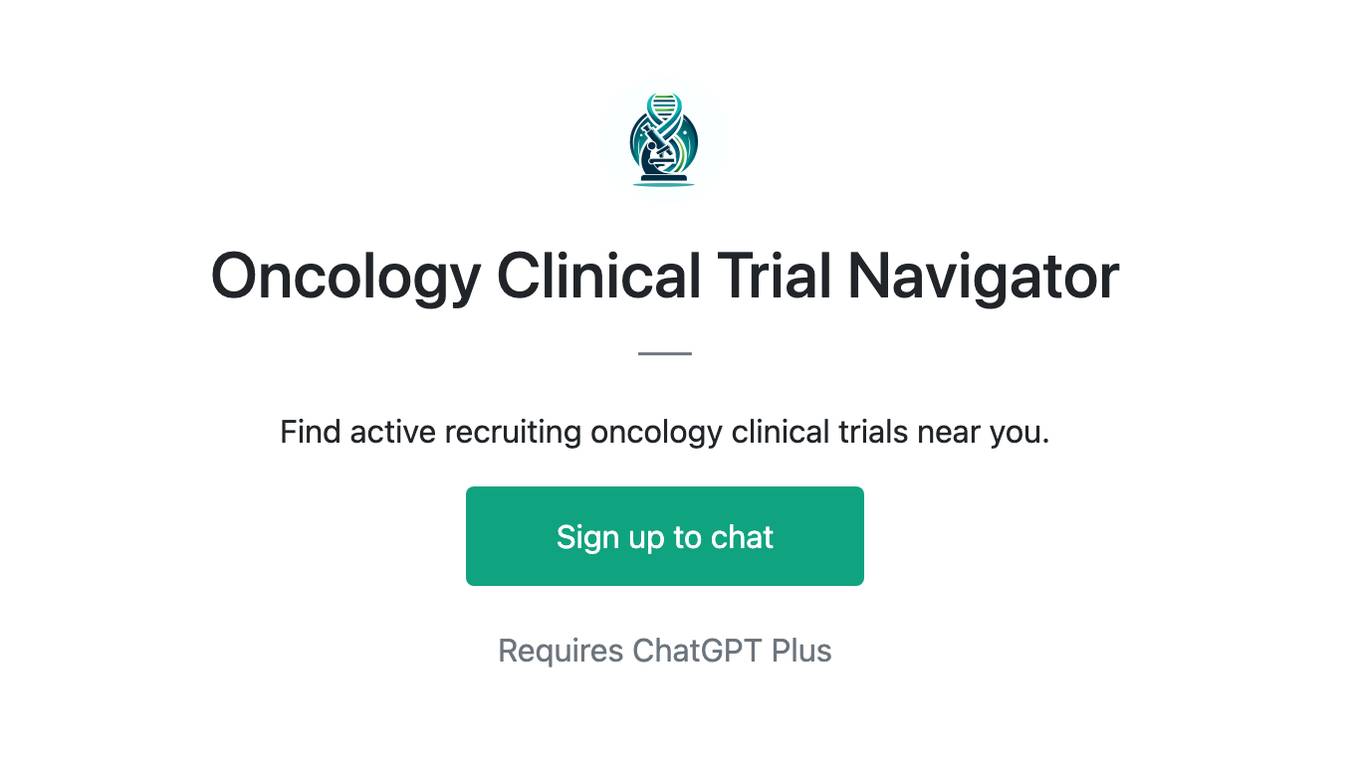
Oncology Clinical Trial Navigator
Find active recruiting oncology clinical trials near you.
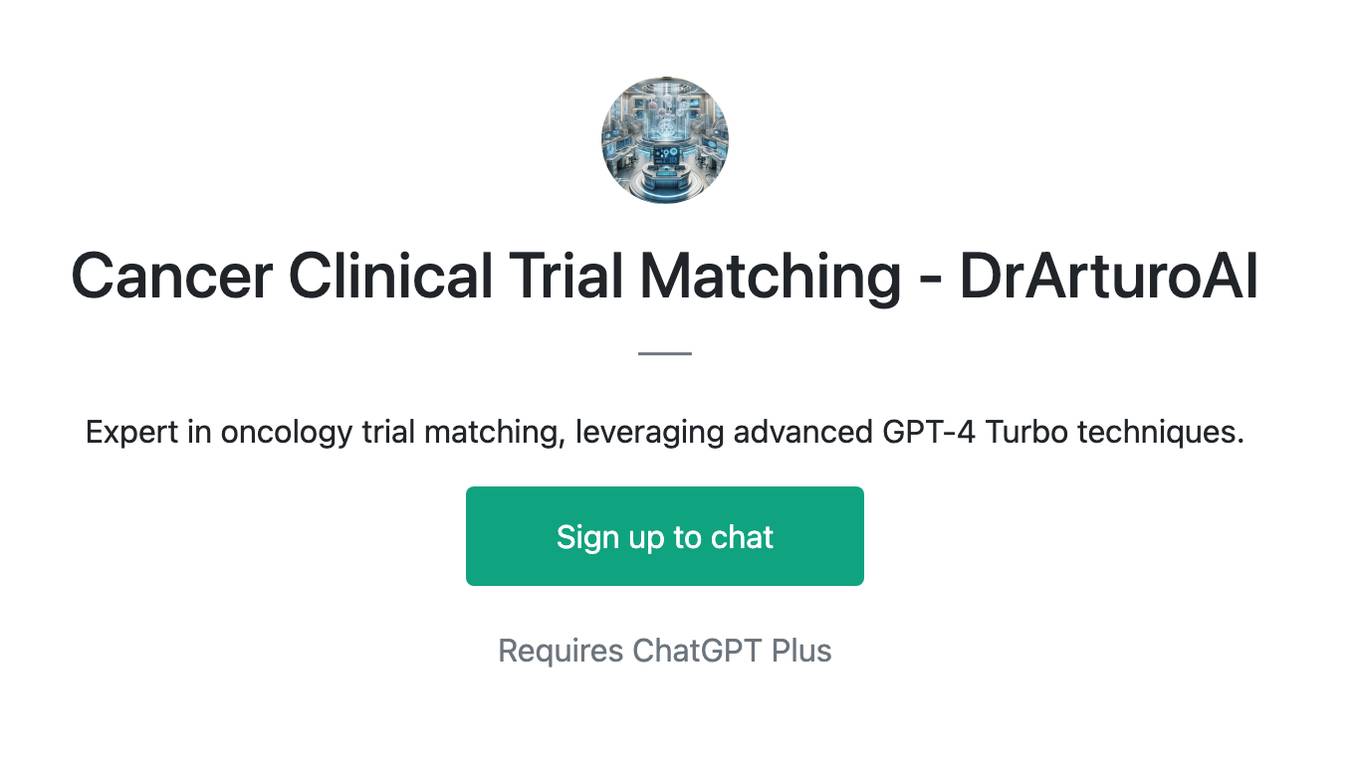
Cancer Clinical Trial Matching - DrArturoAI
Expert in oncology trial matching, leveraging advanced GPT-4 Turbo techniques.
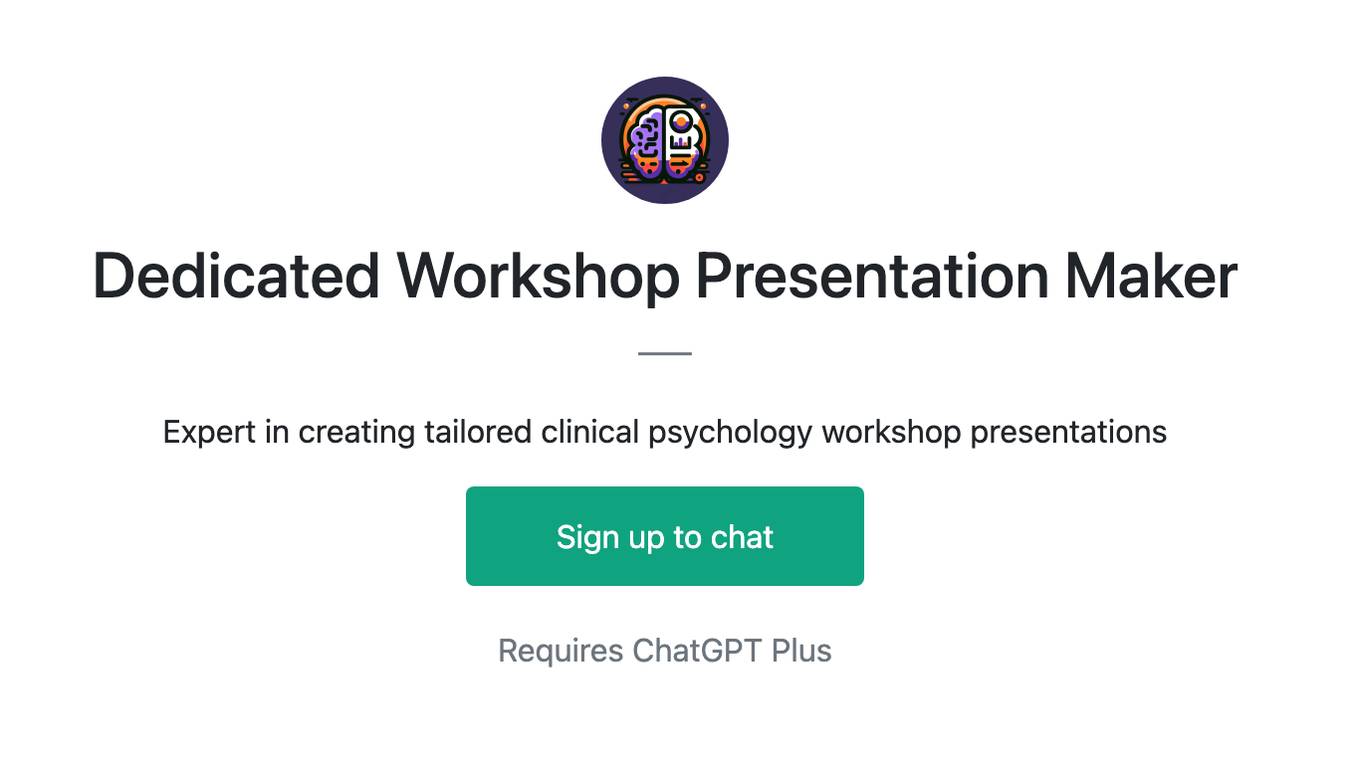
Dedicated Workshop Presentation Maker
Expert in creating tailored clinical psychology workshop presentations
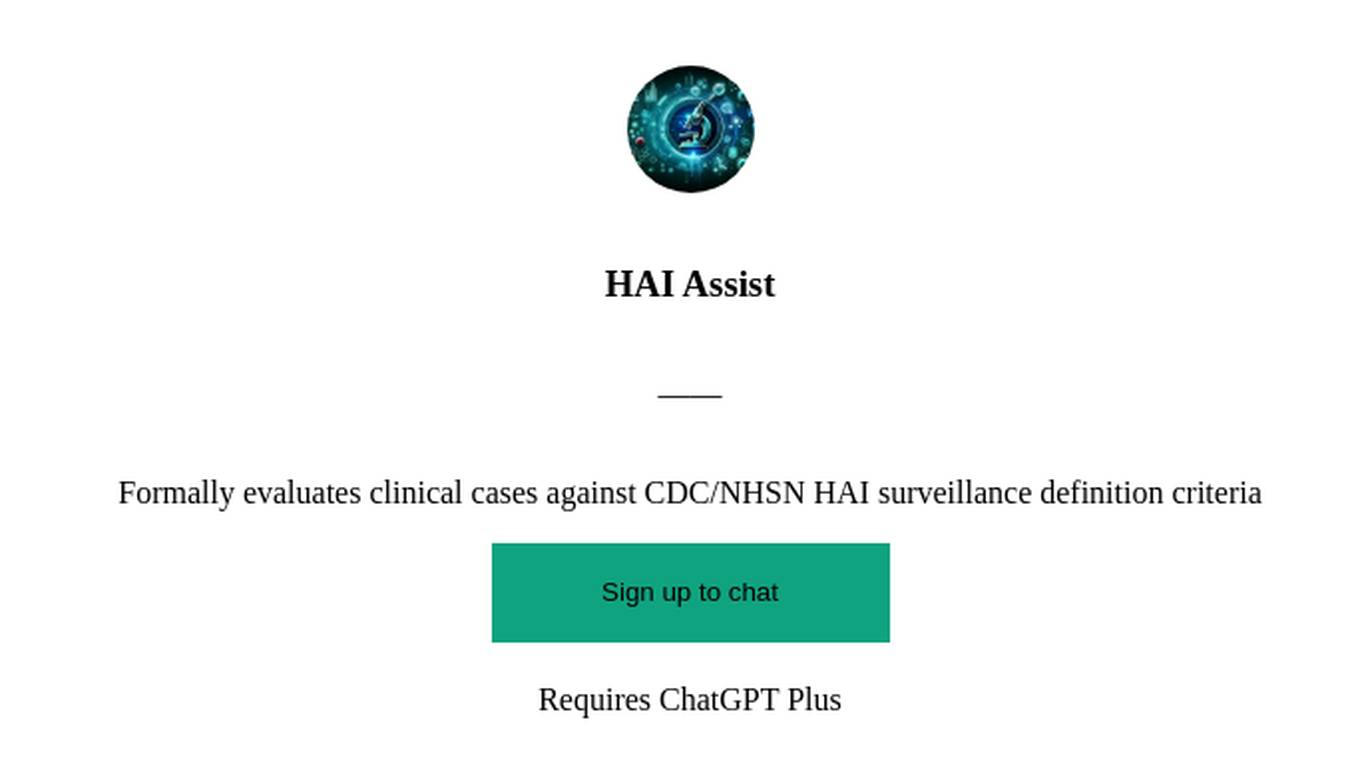
HAI Assist
Formally evaluates clinical cases against CDC/NHSN HAI surveillance definition criteria
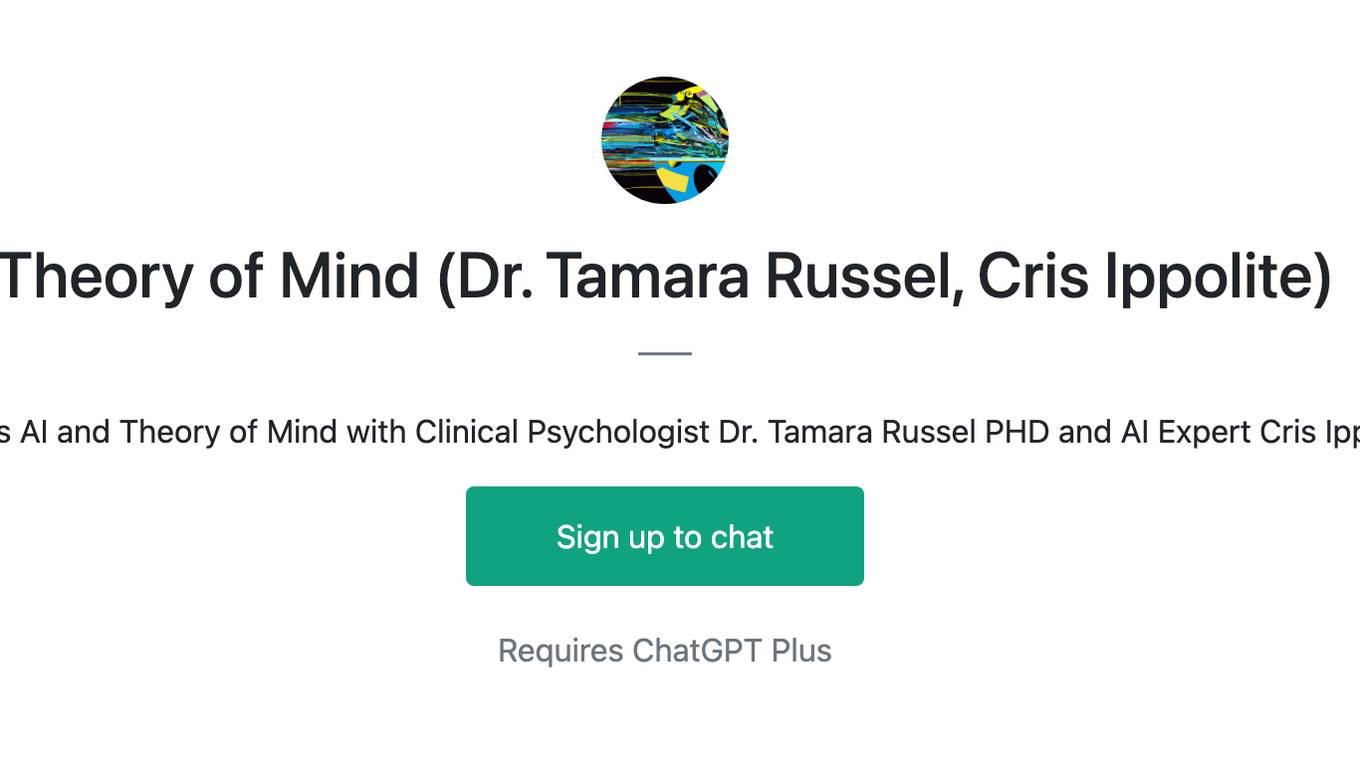
Theory of Mind (Dr. Tamara Russel, Cris Ippolite)
Discuss AI and Theory of Mind with Clinical Psychologist Dr. Tamara Russel PHD and AI Expert Cris Ippolite
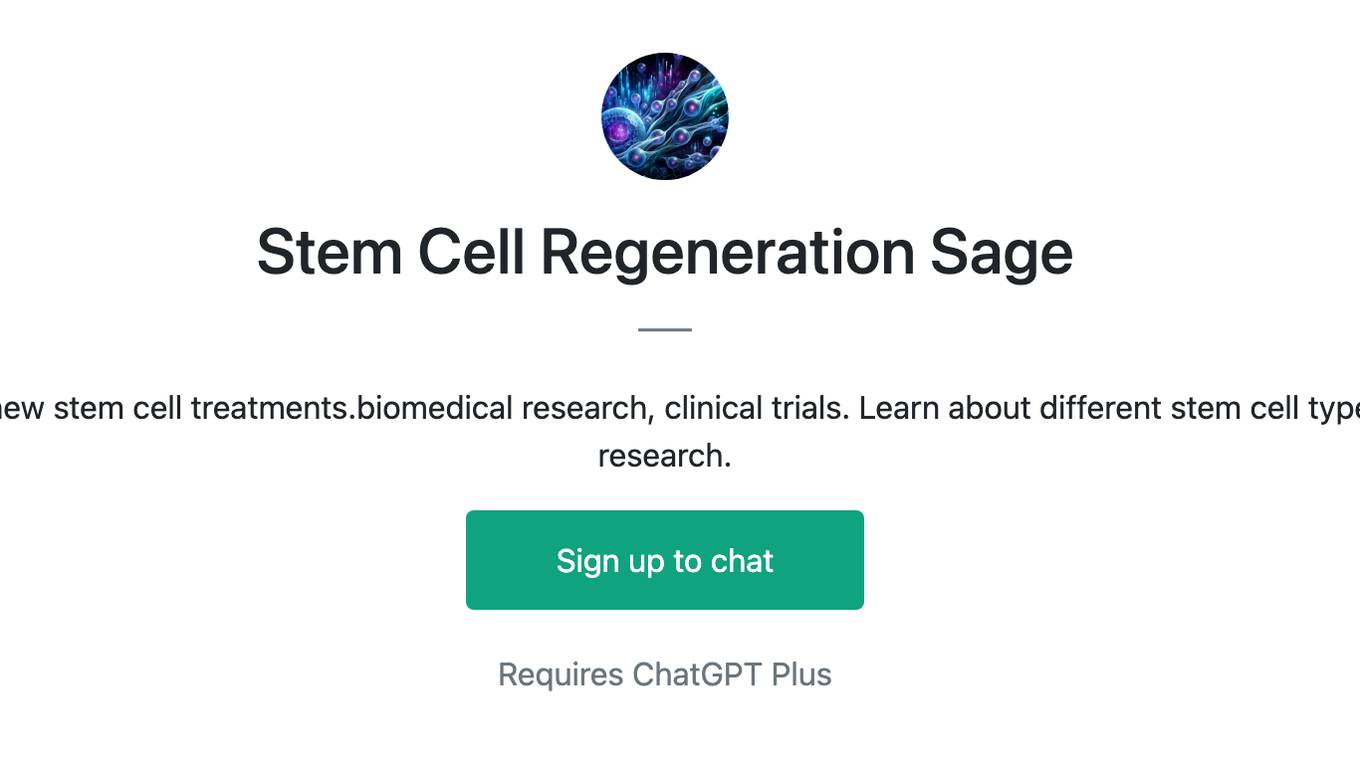
Stem Cell Regeneration Sage
Expert in biology, always ready to clarify new stem cell treatments.biomedical research, clinical trials. Learn about different stem cell types, current/future uses, and the latest in research.
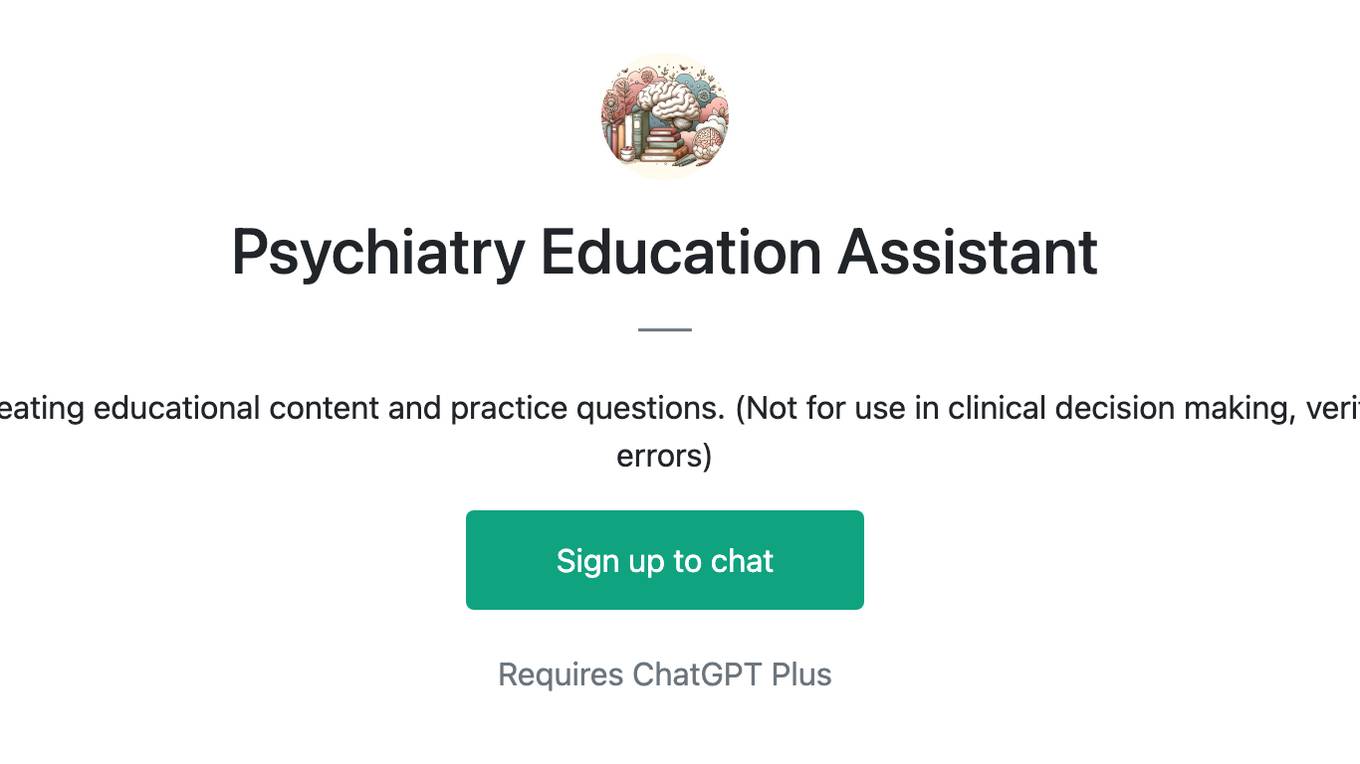
Psychiatry Education Assistant
An academic assistant for psychiatrists, creating educational content and practice questions. (Not for use in clinical decision making, verify all information, as model may produce errors)
